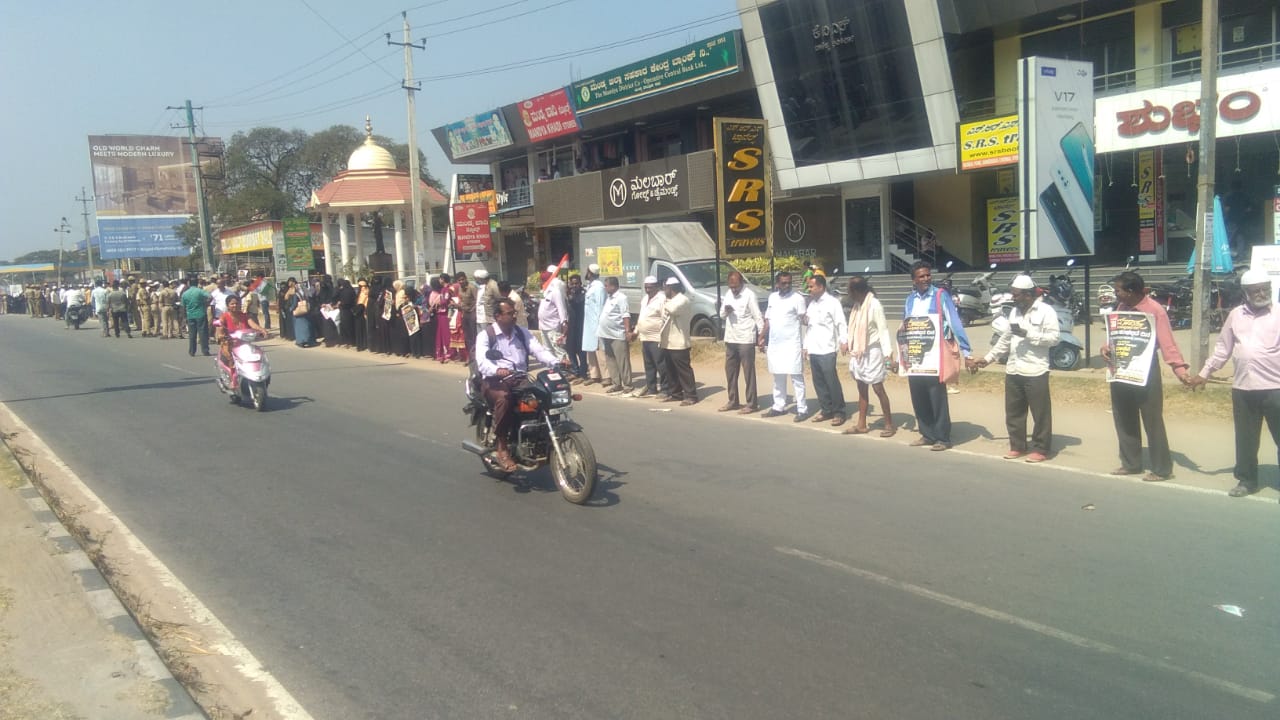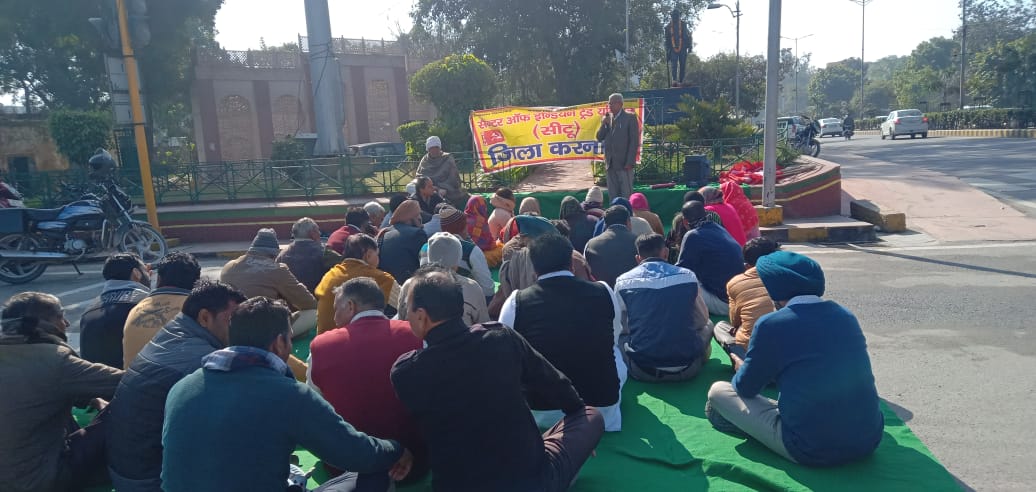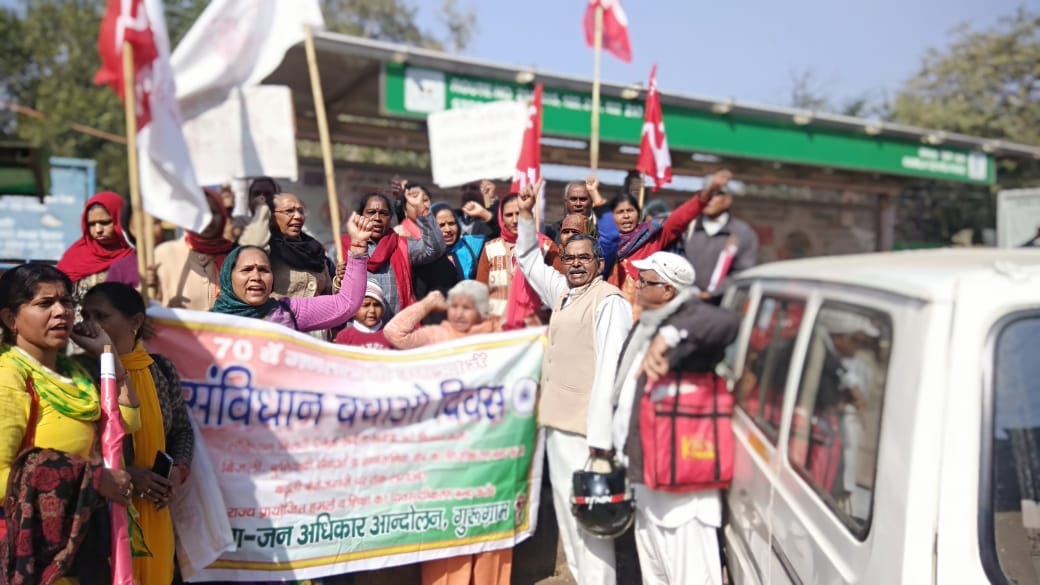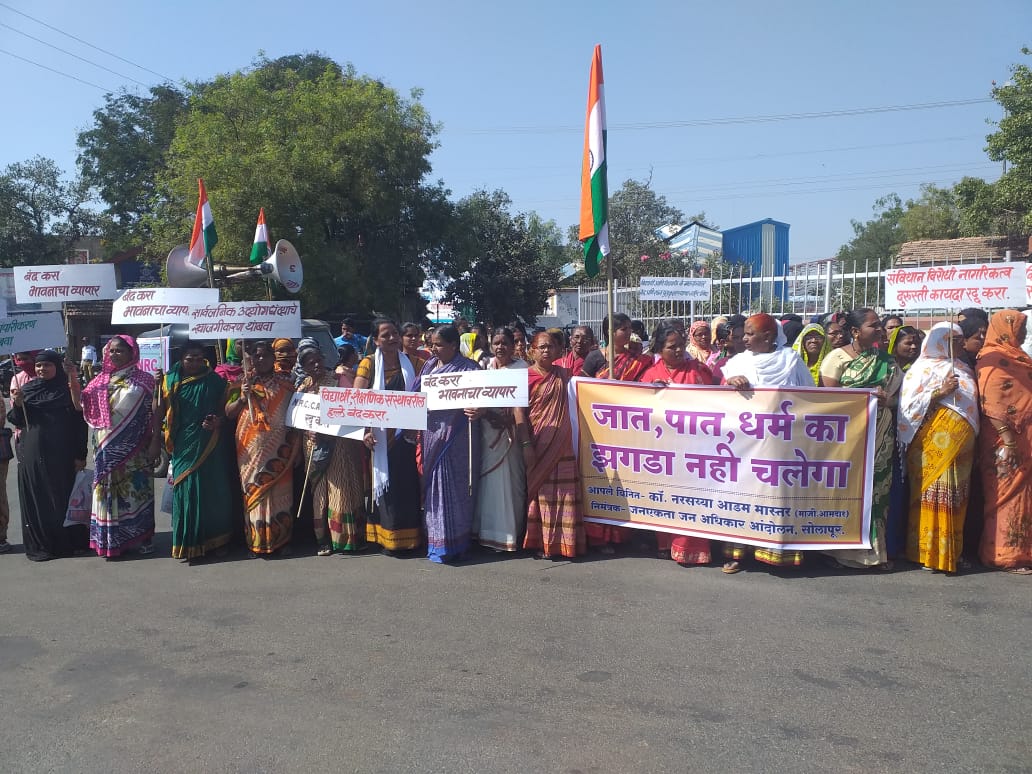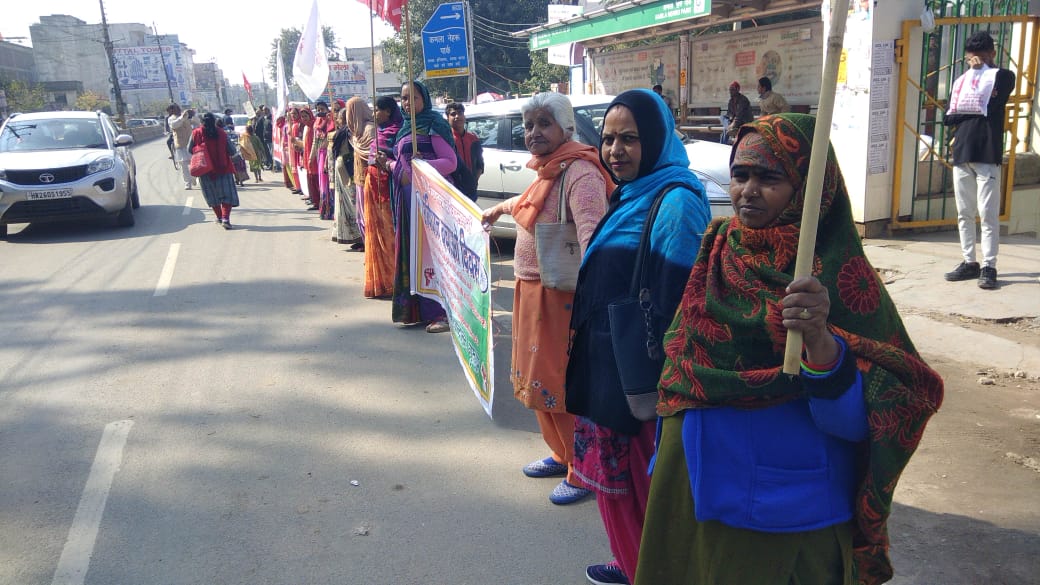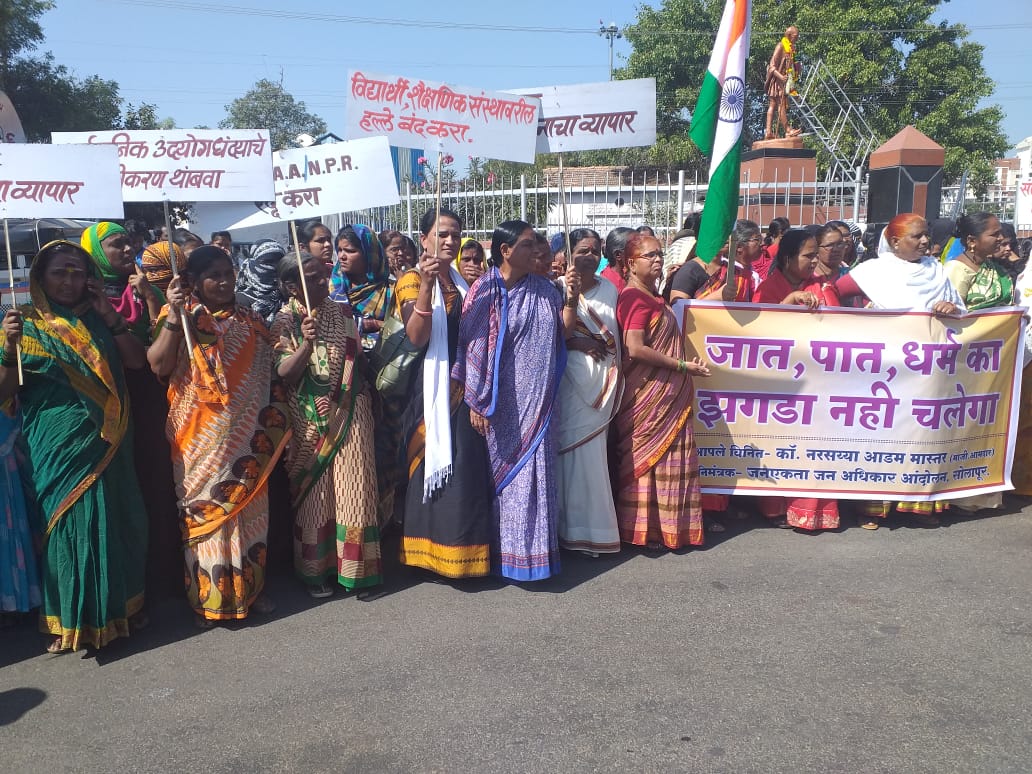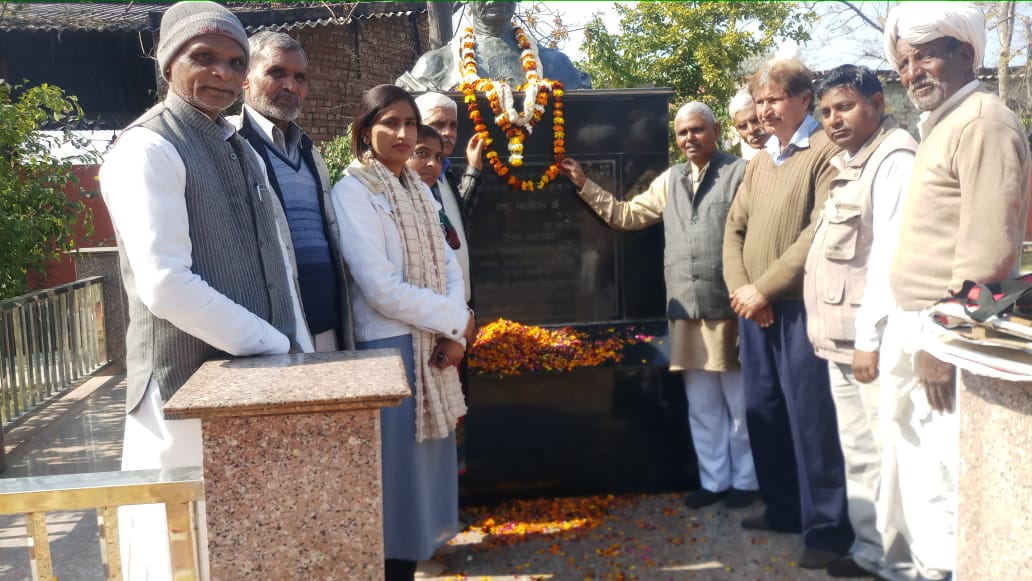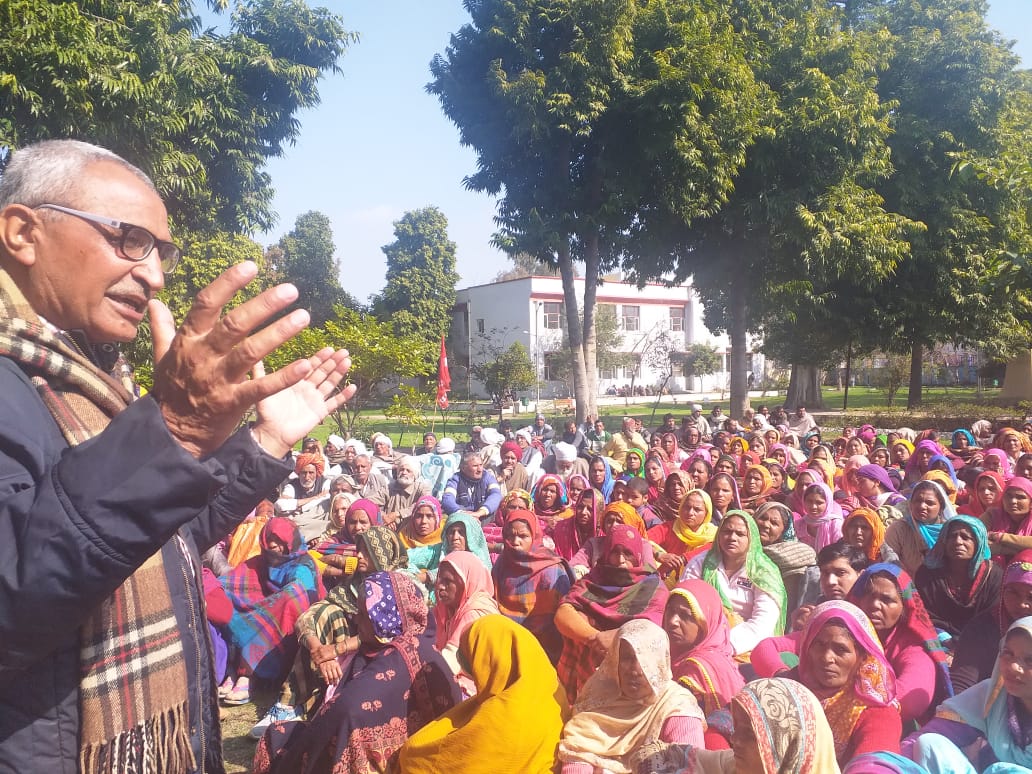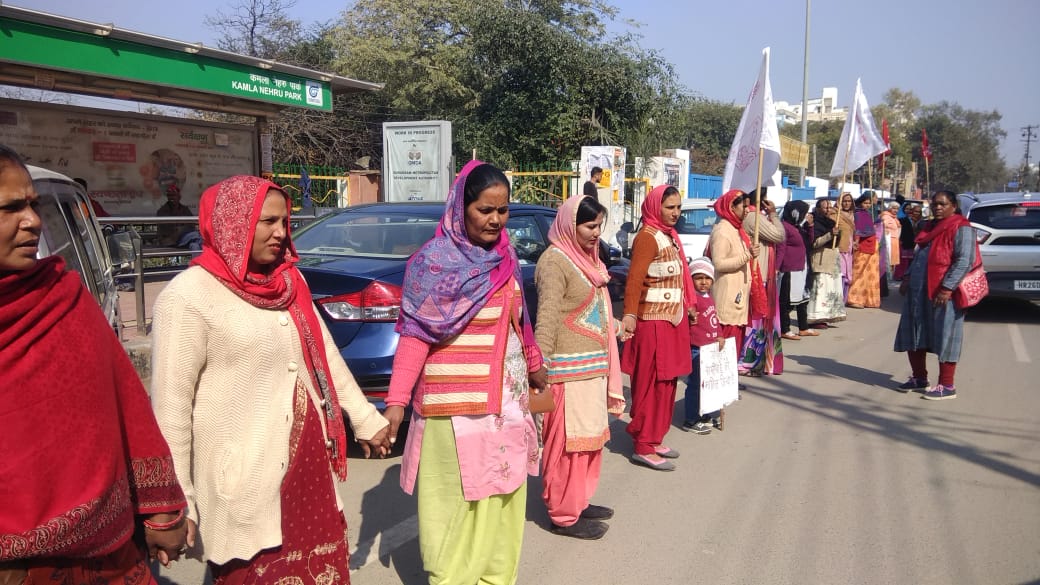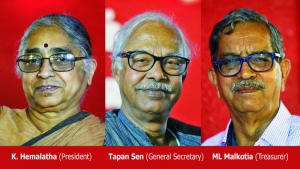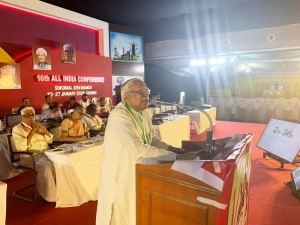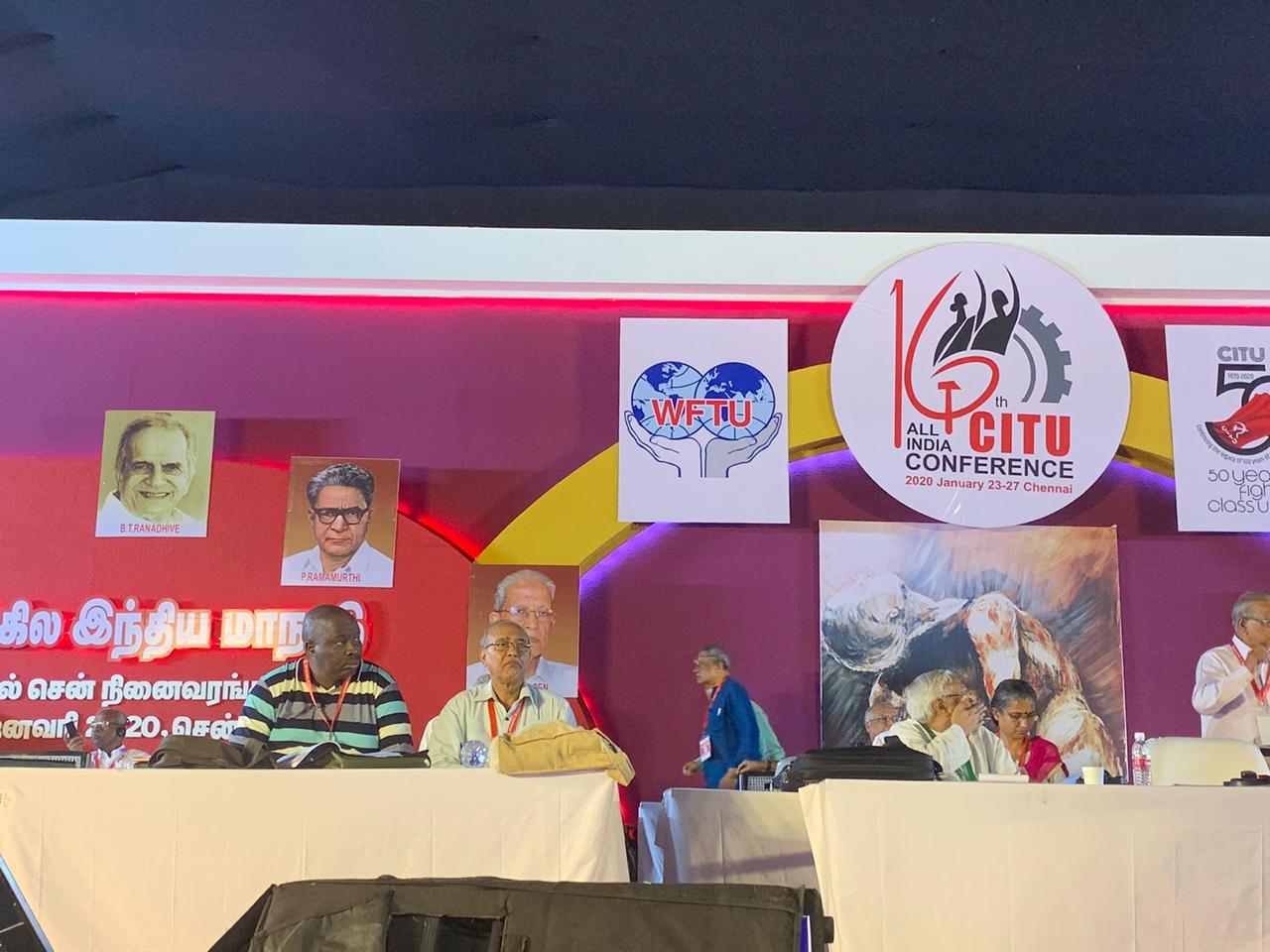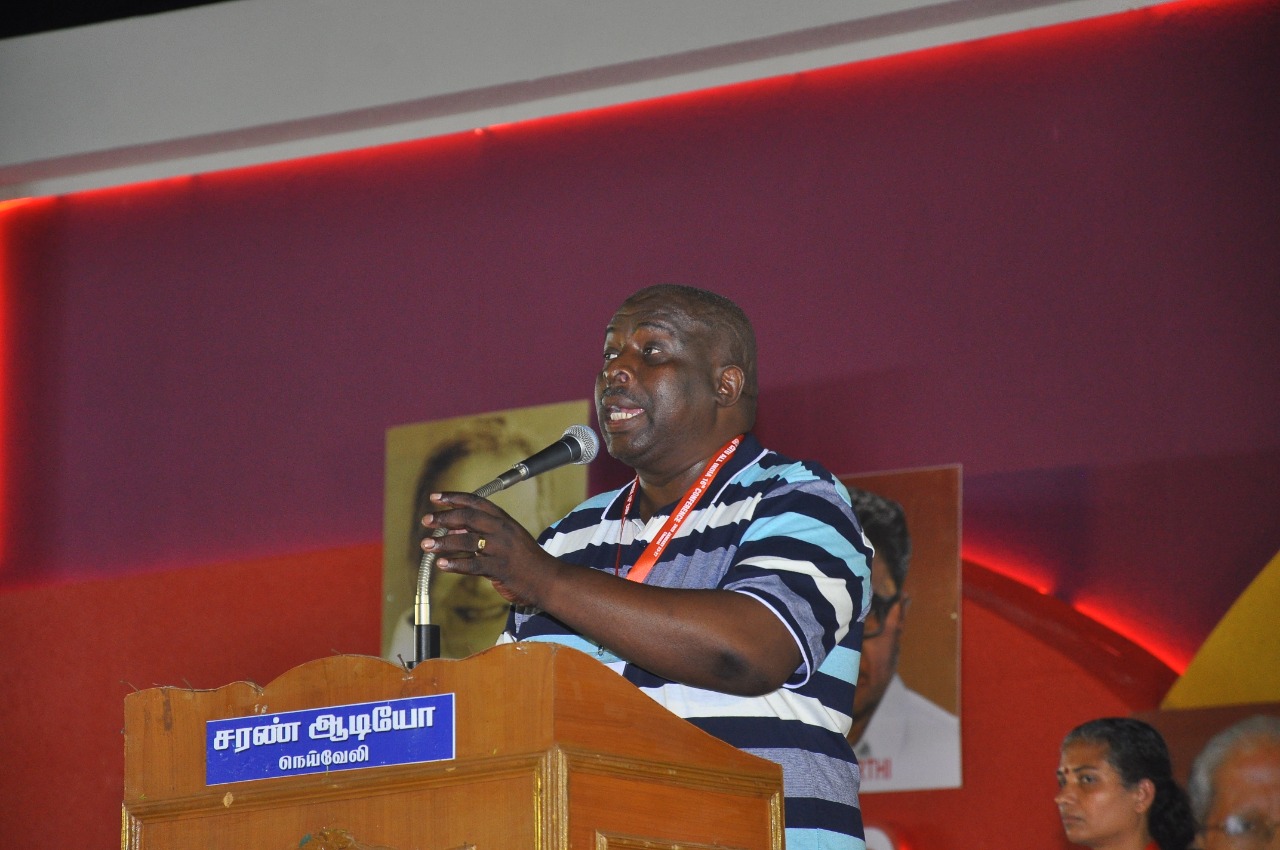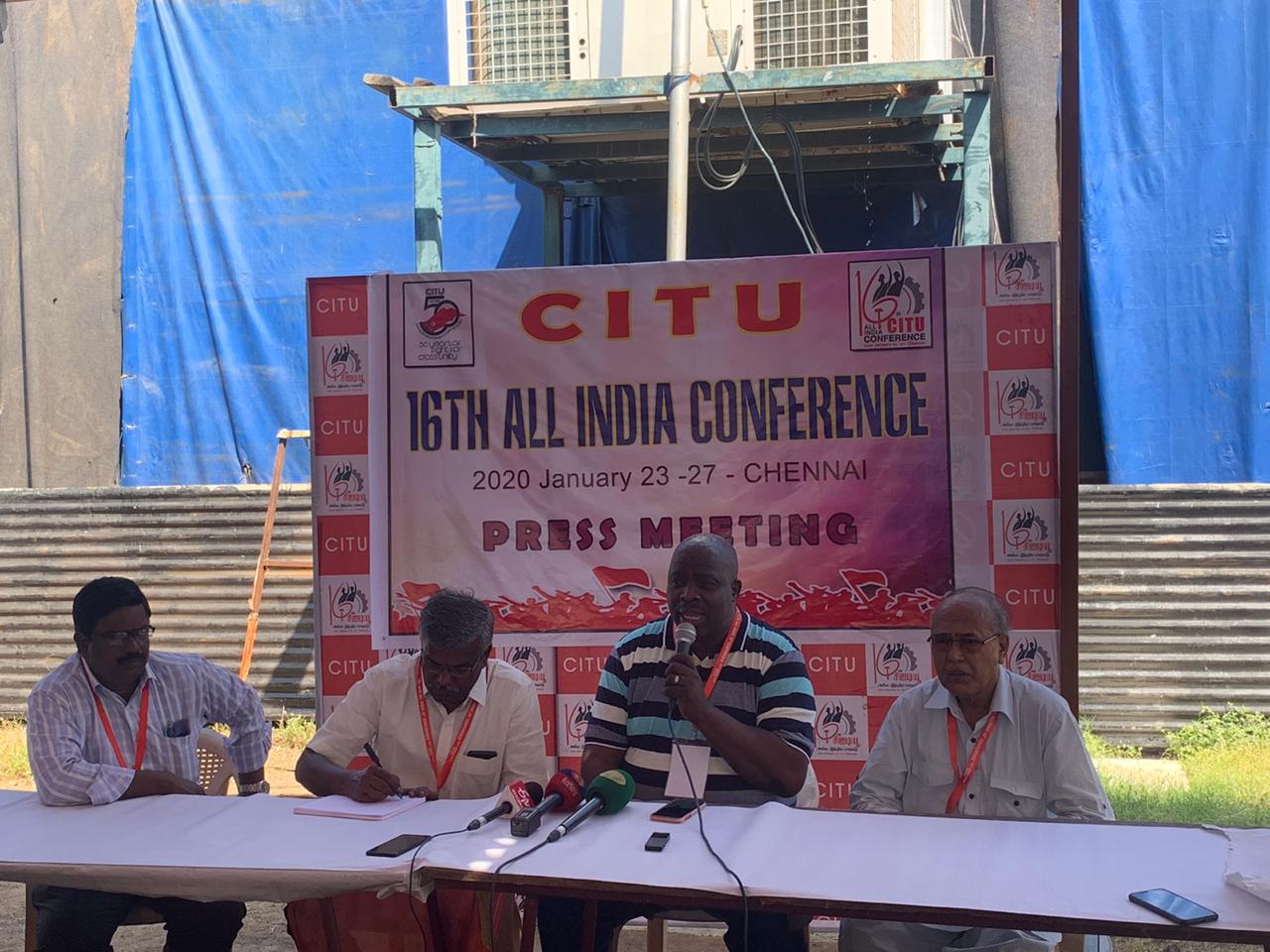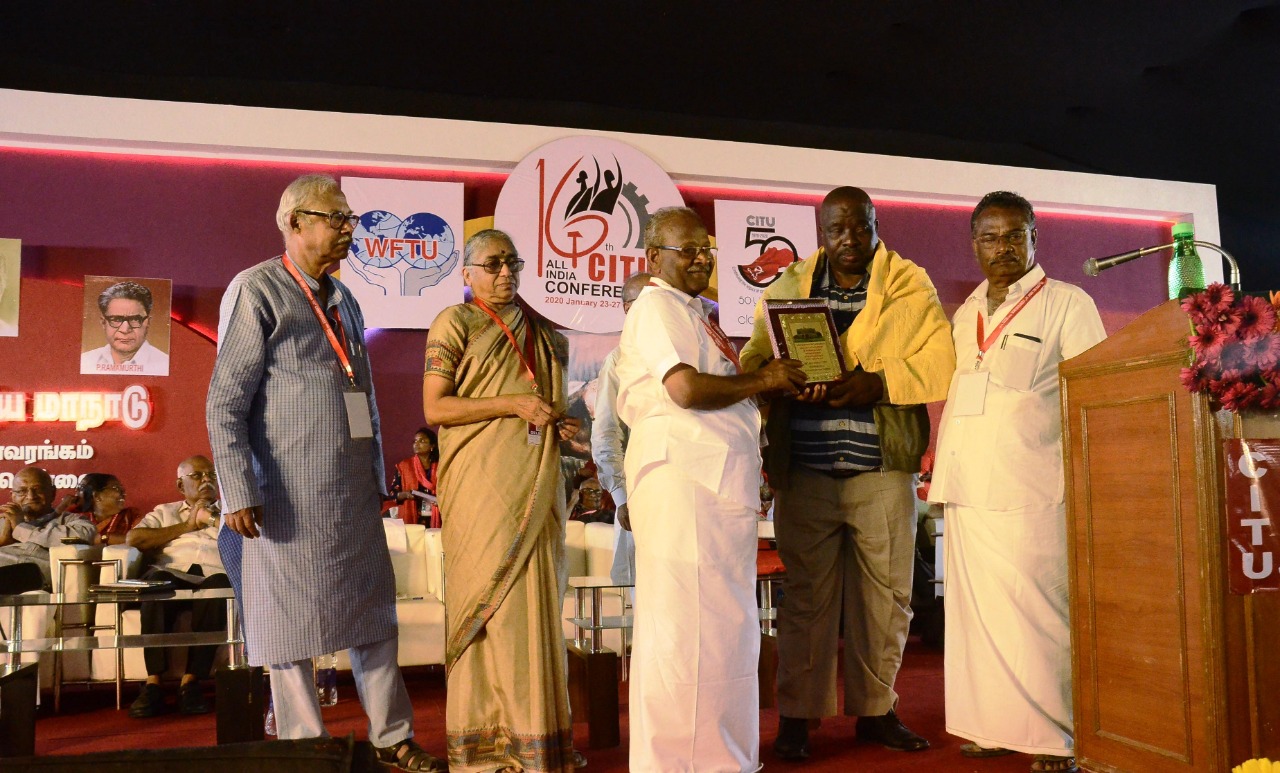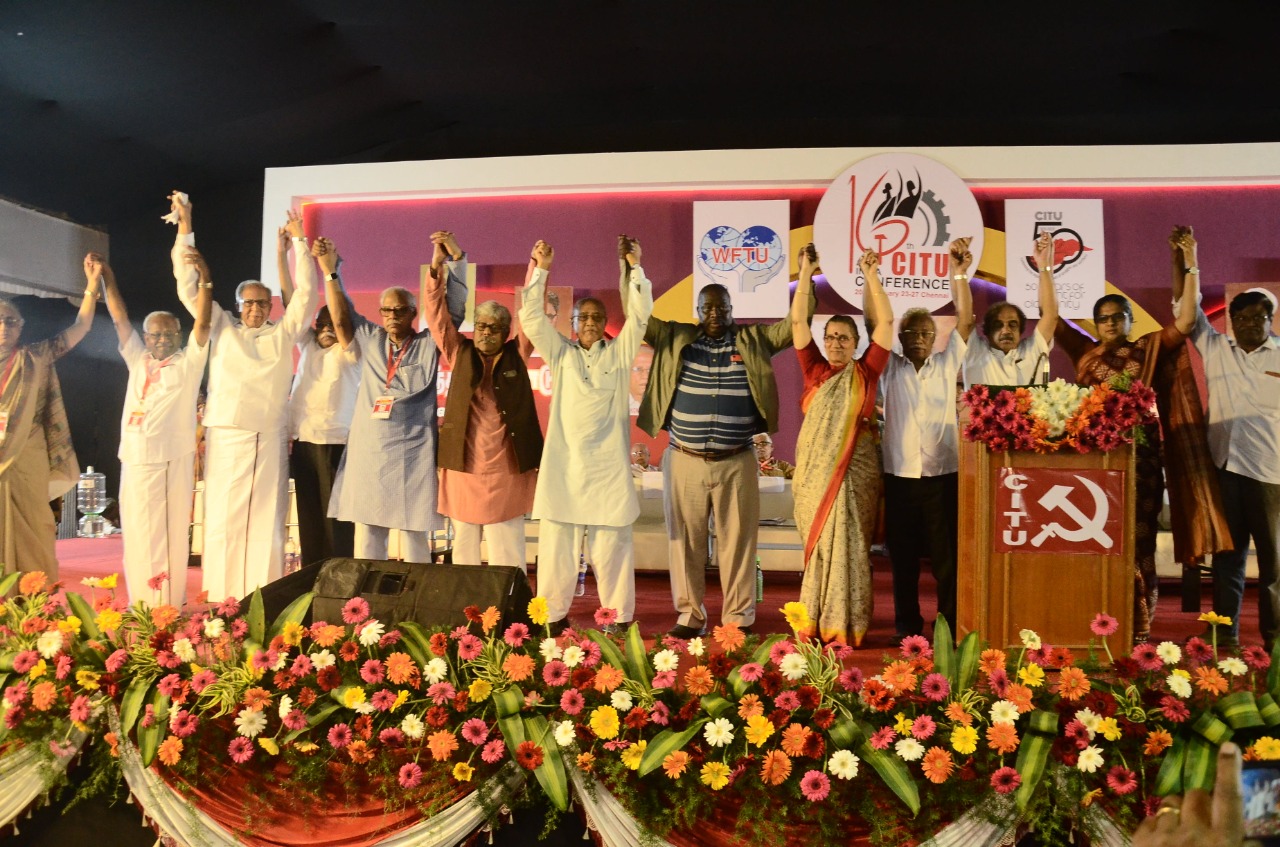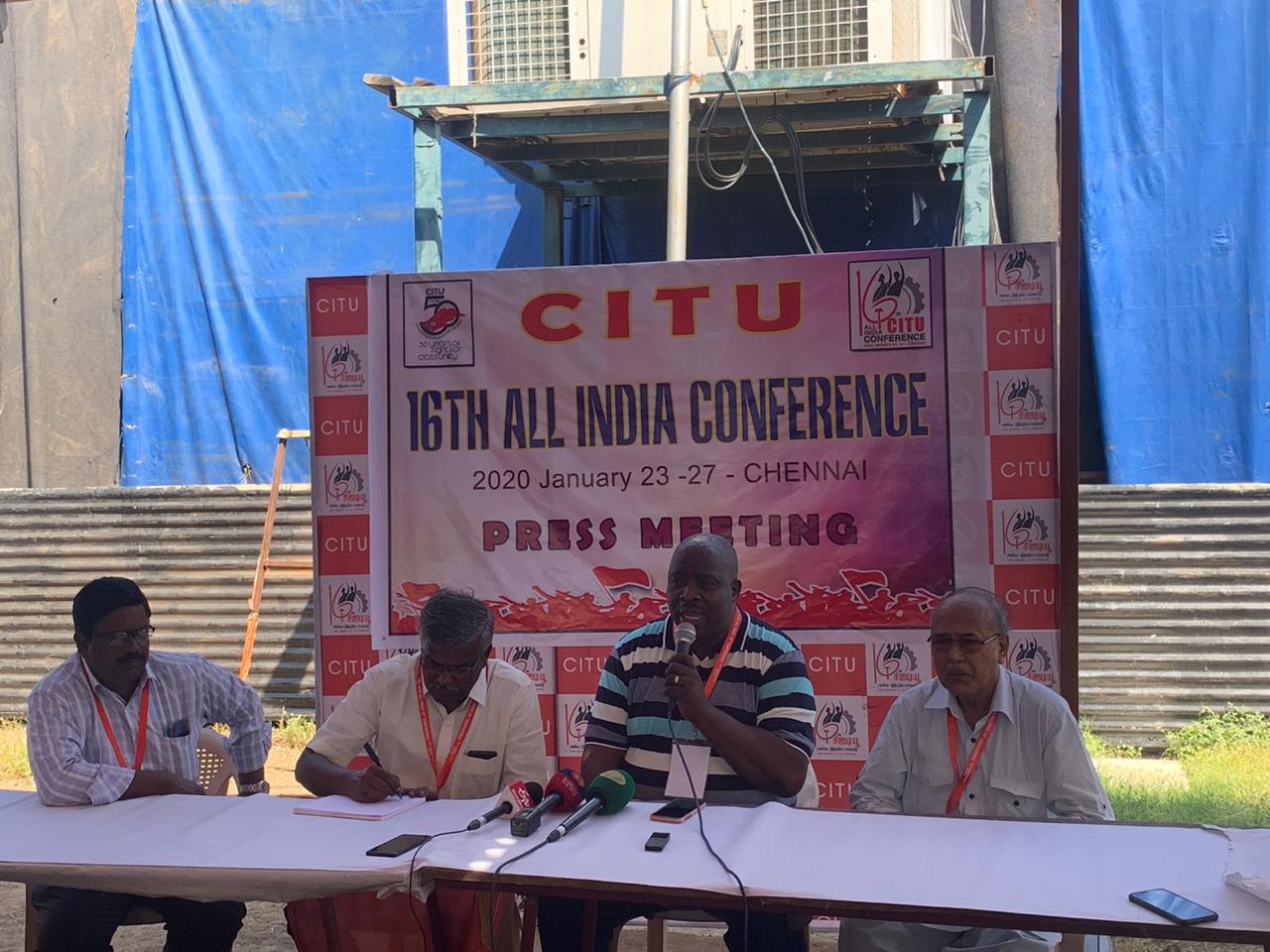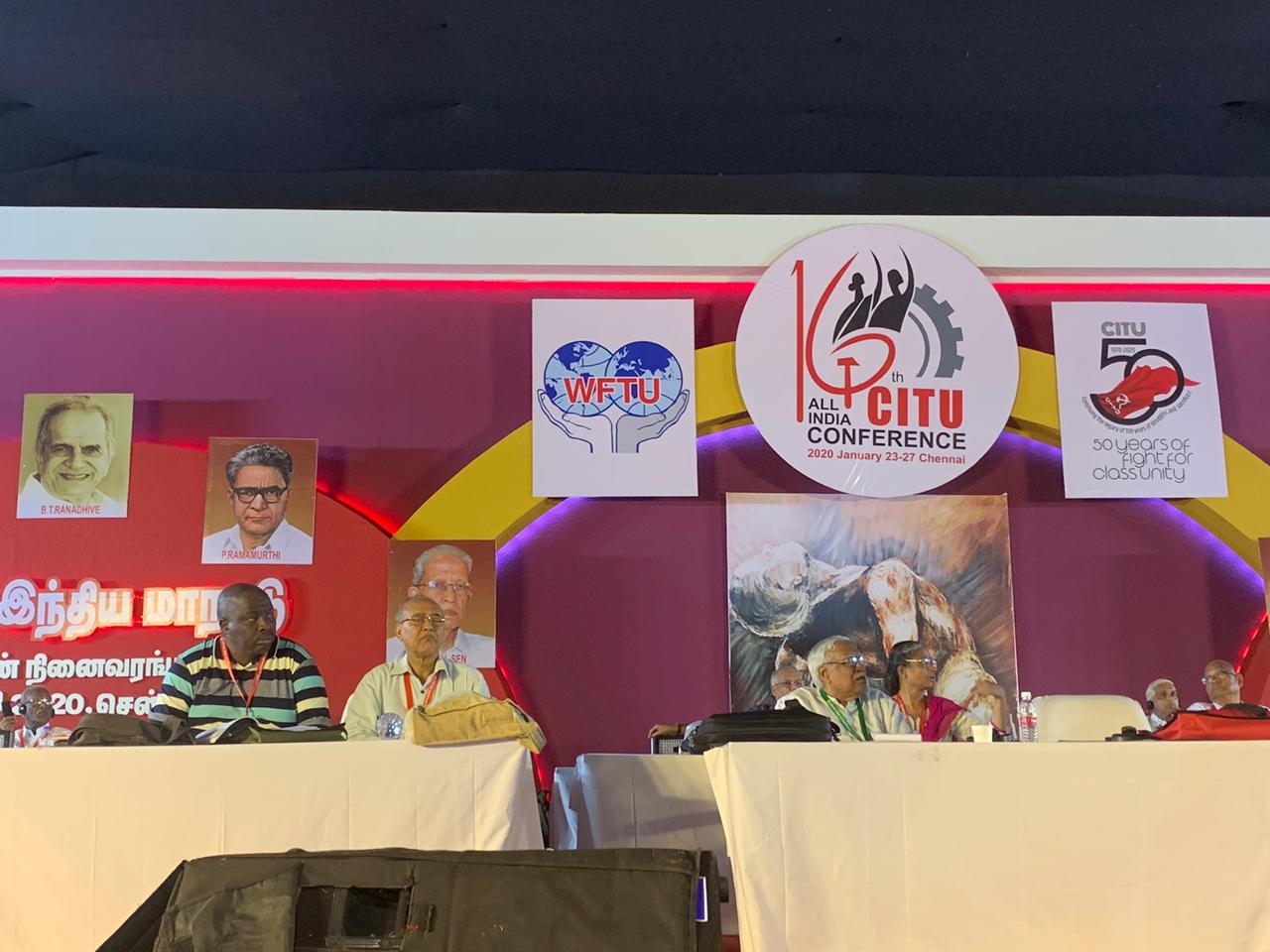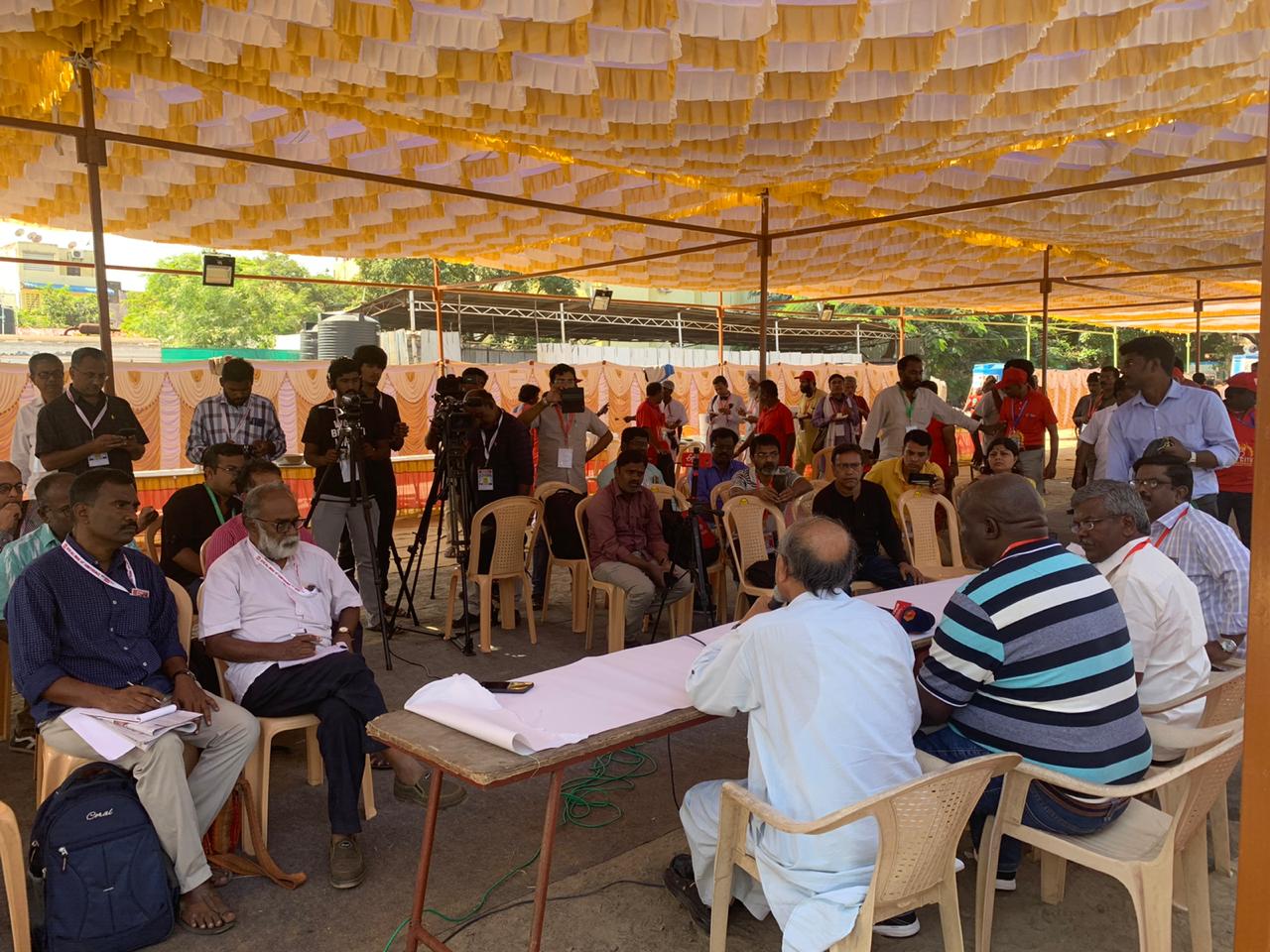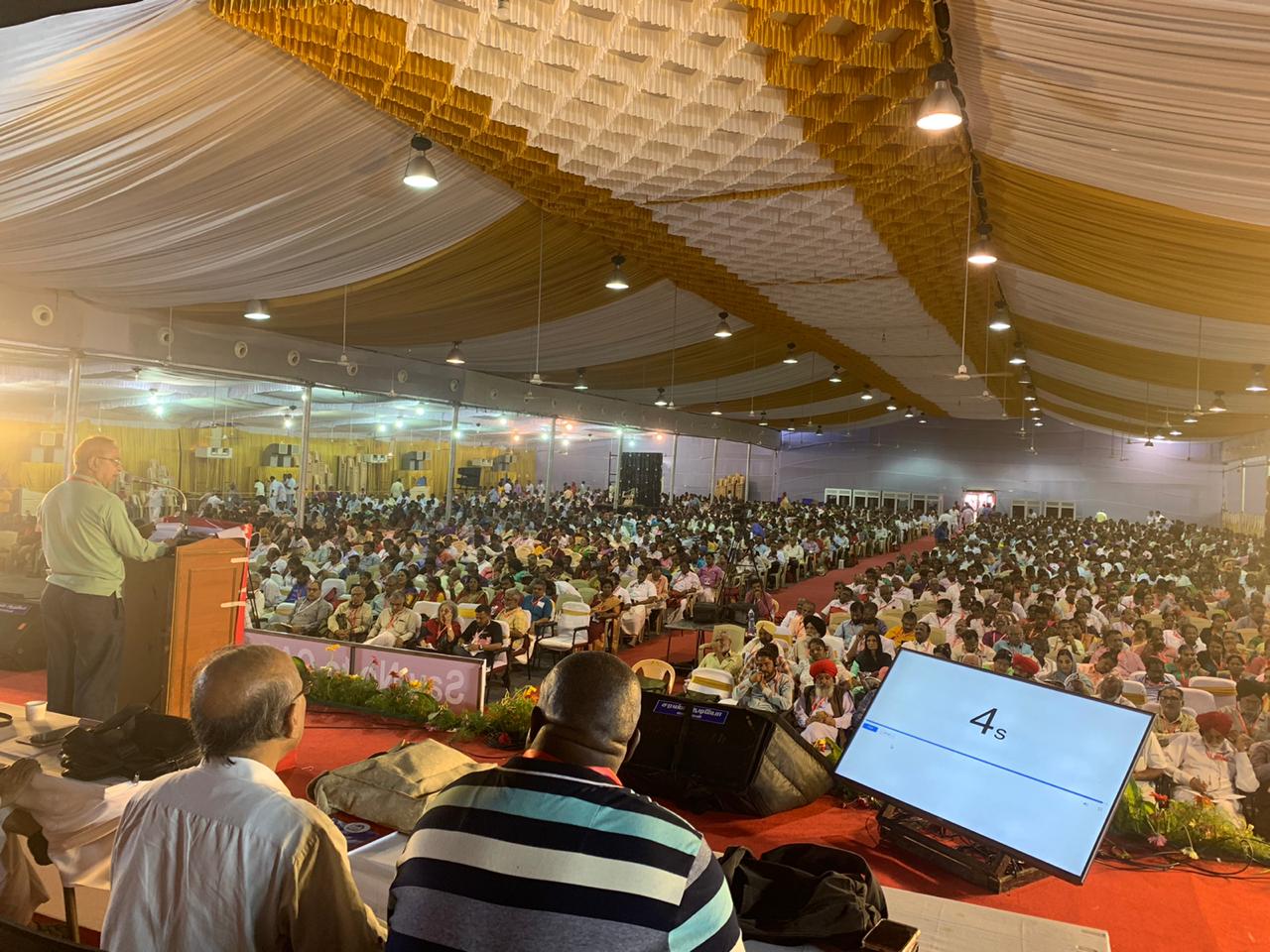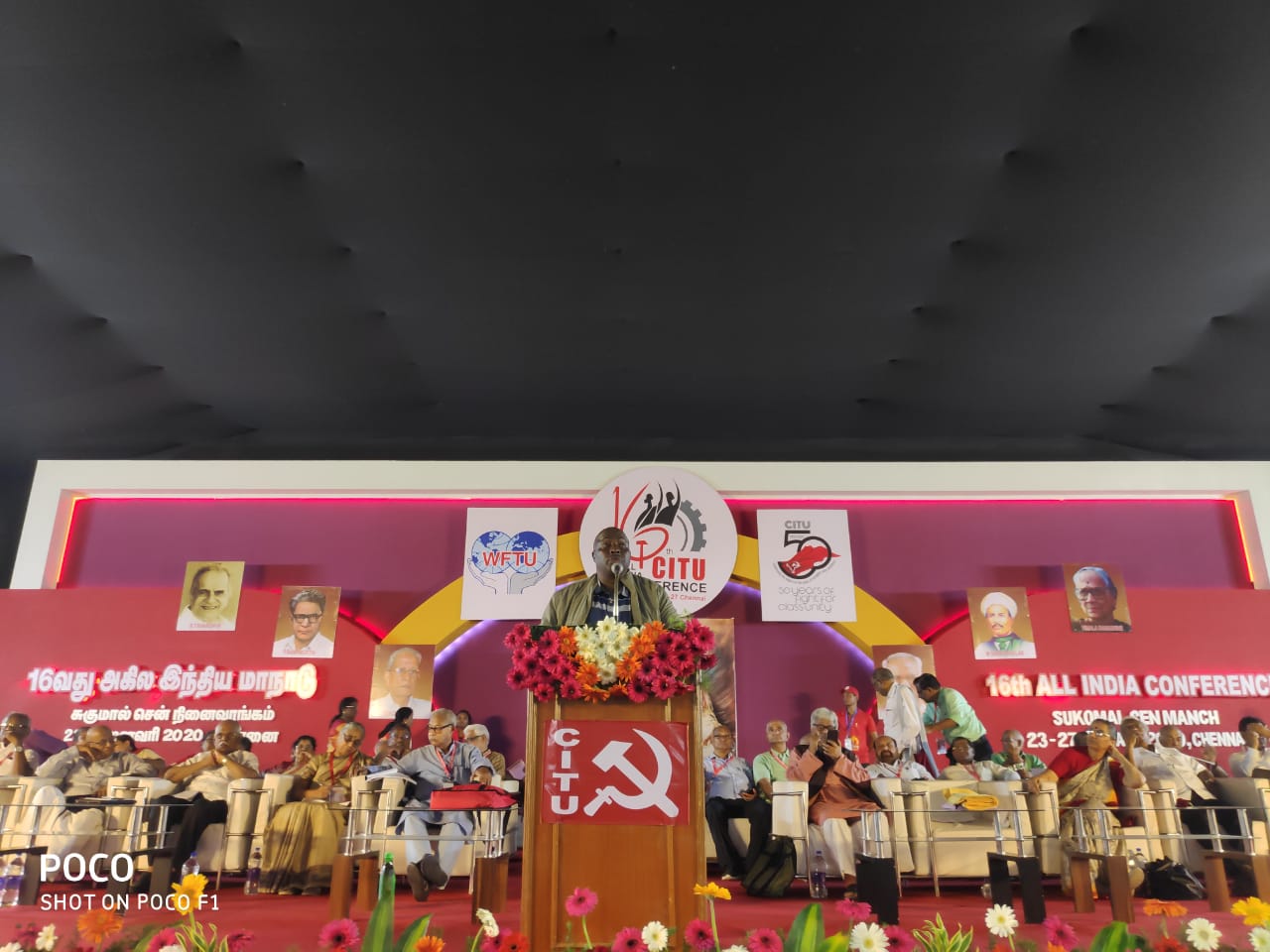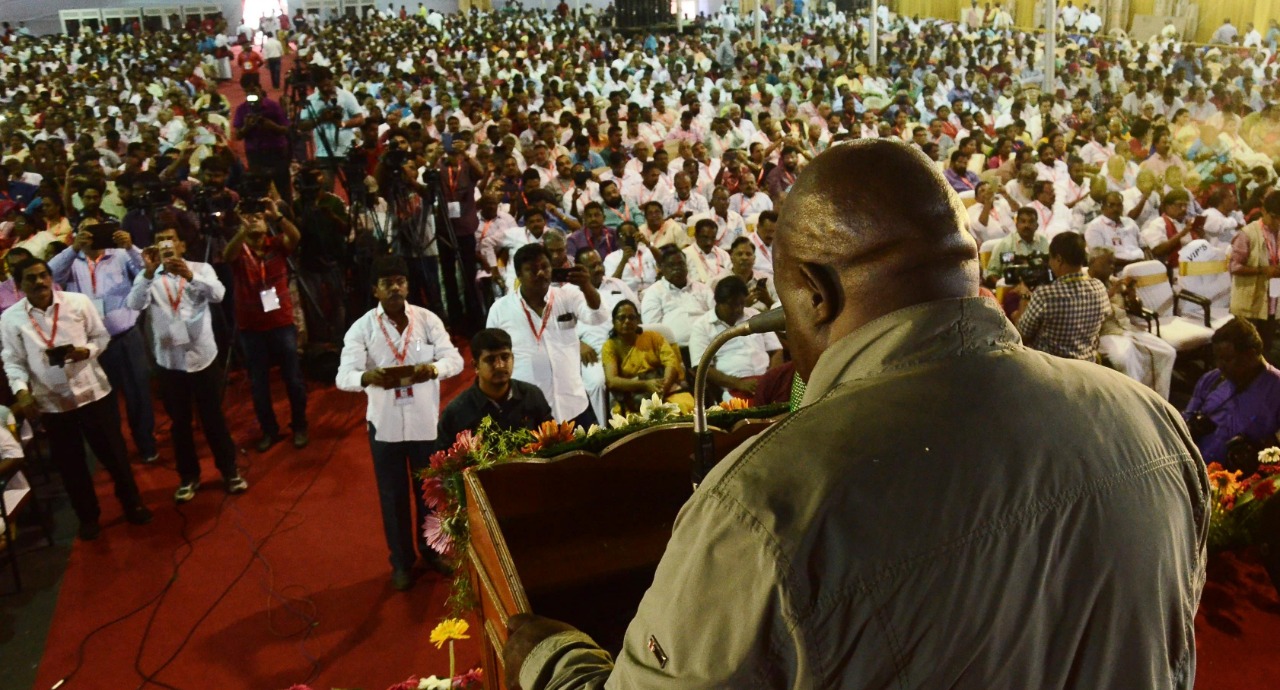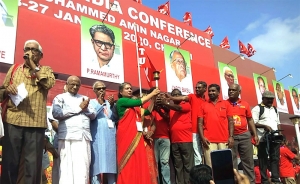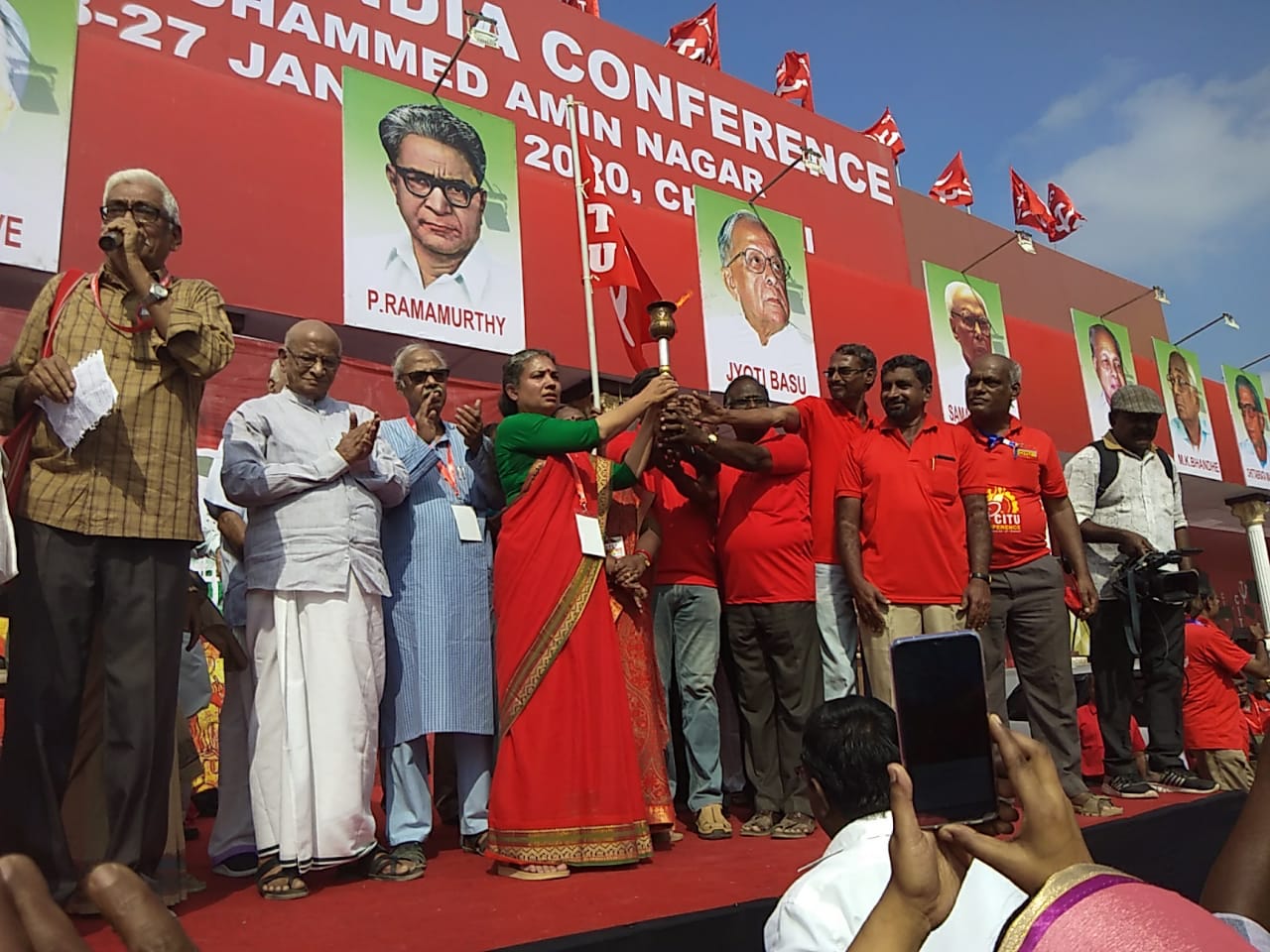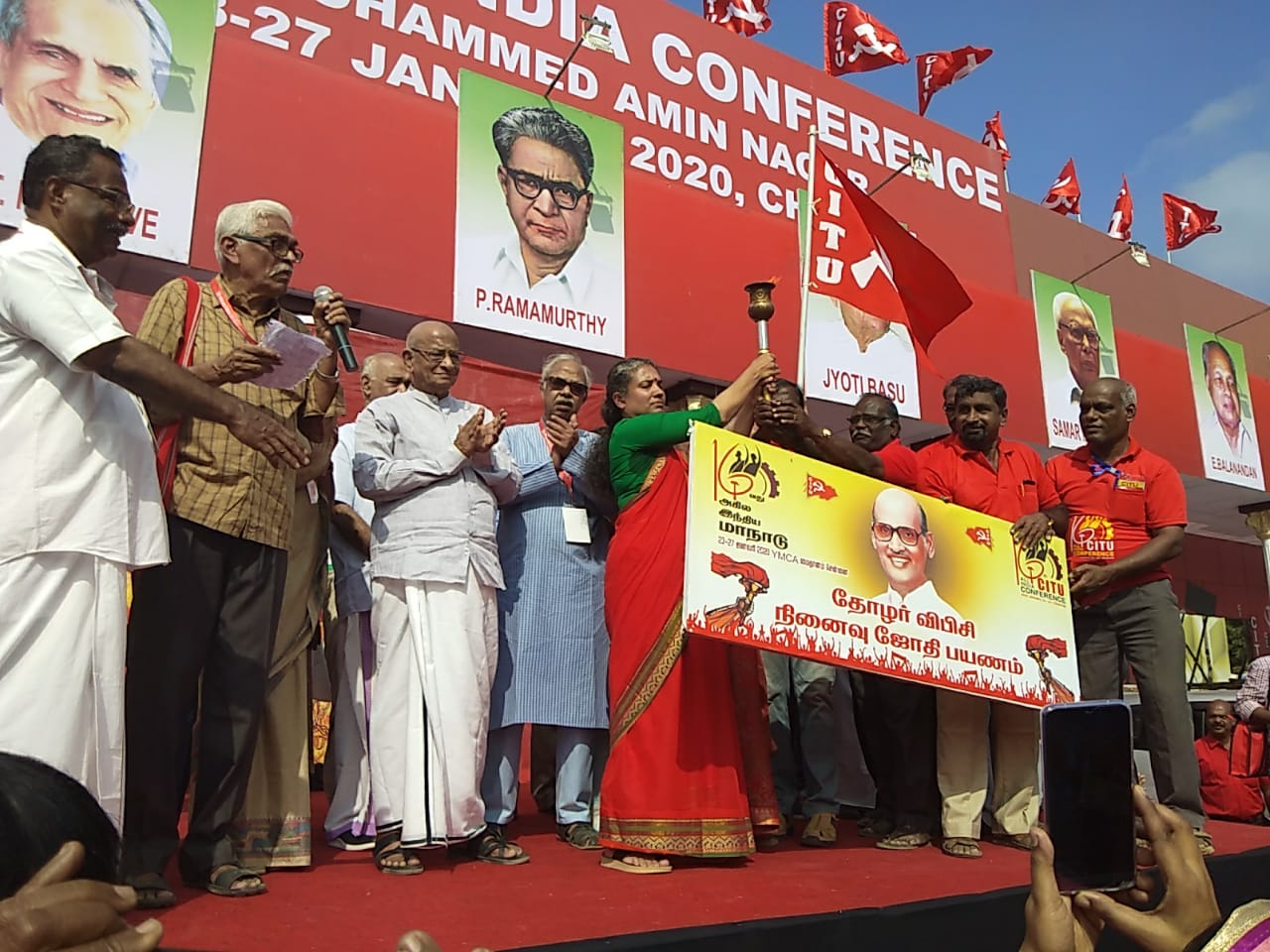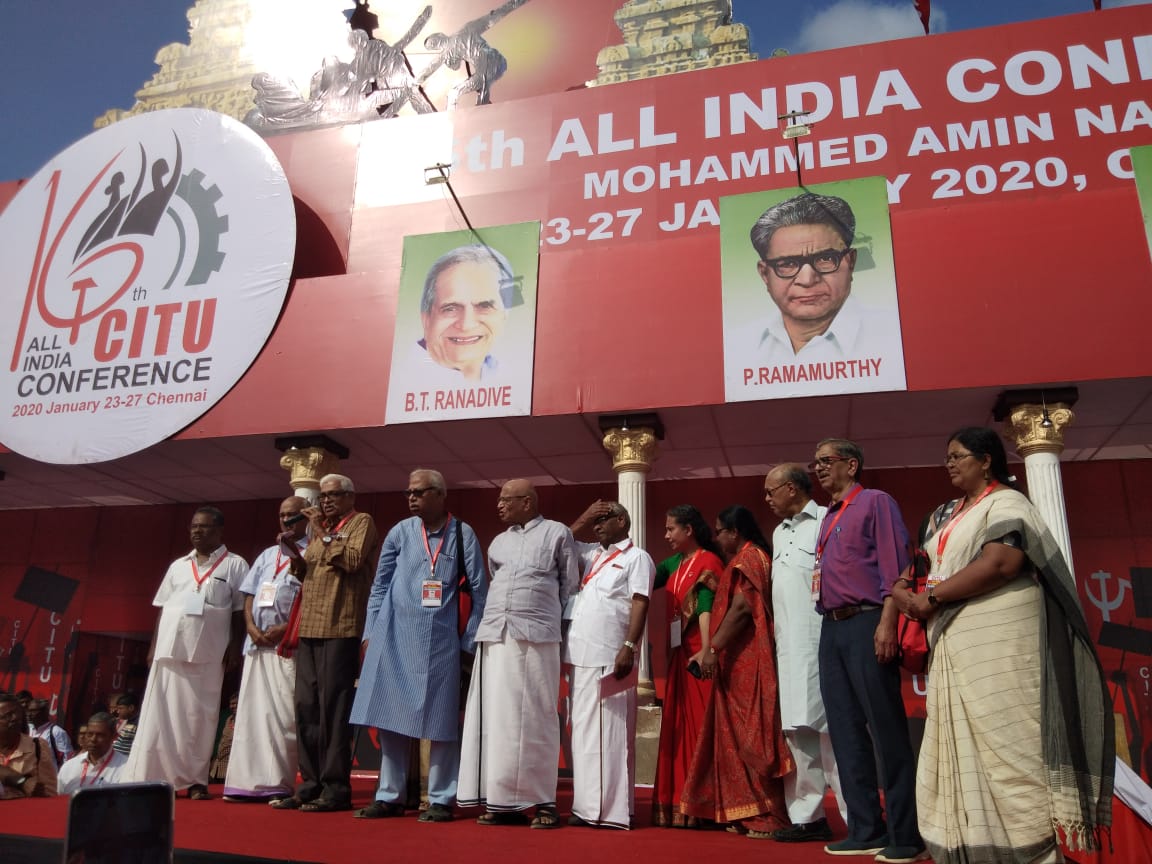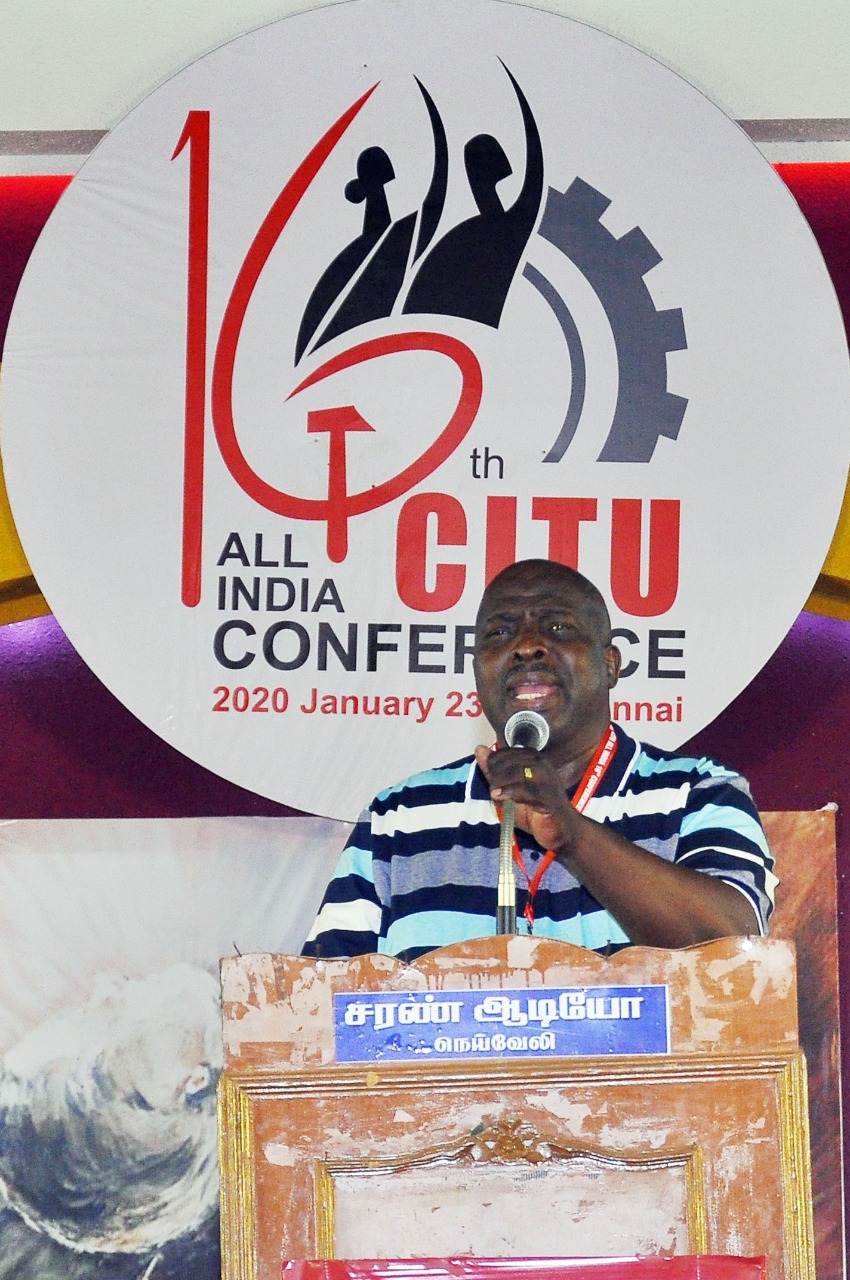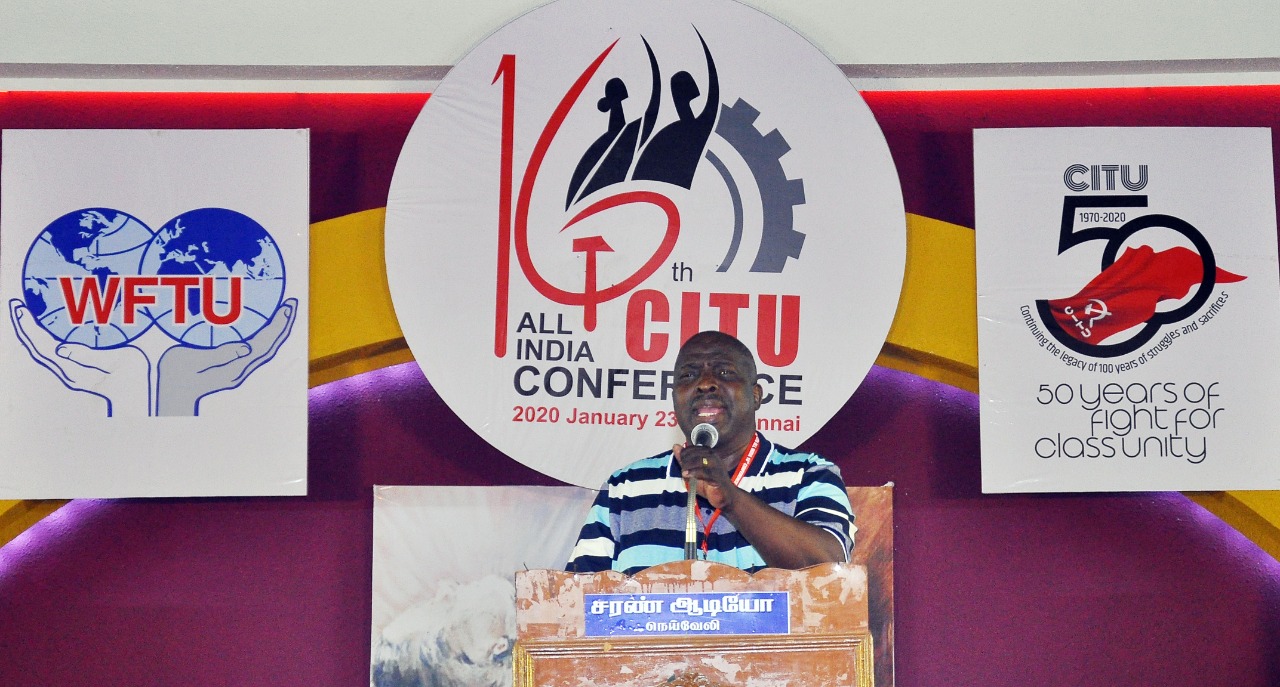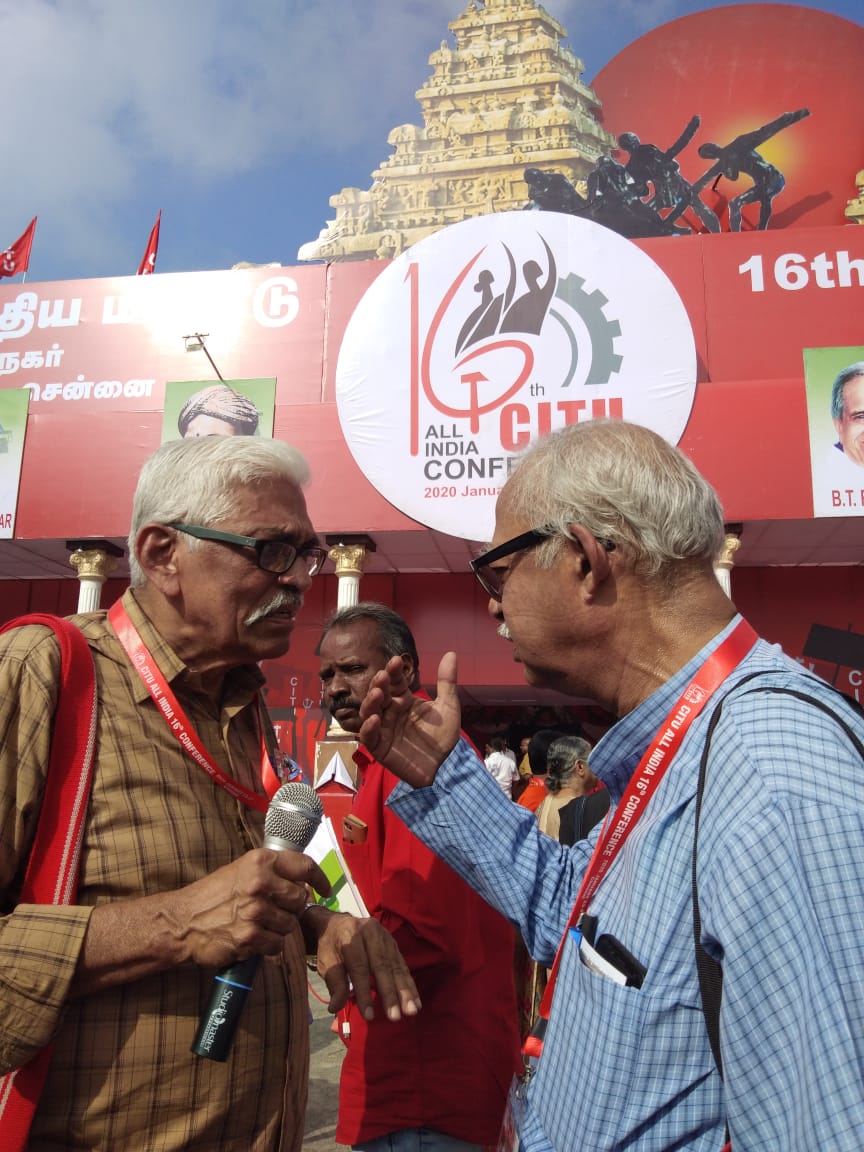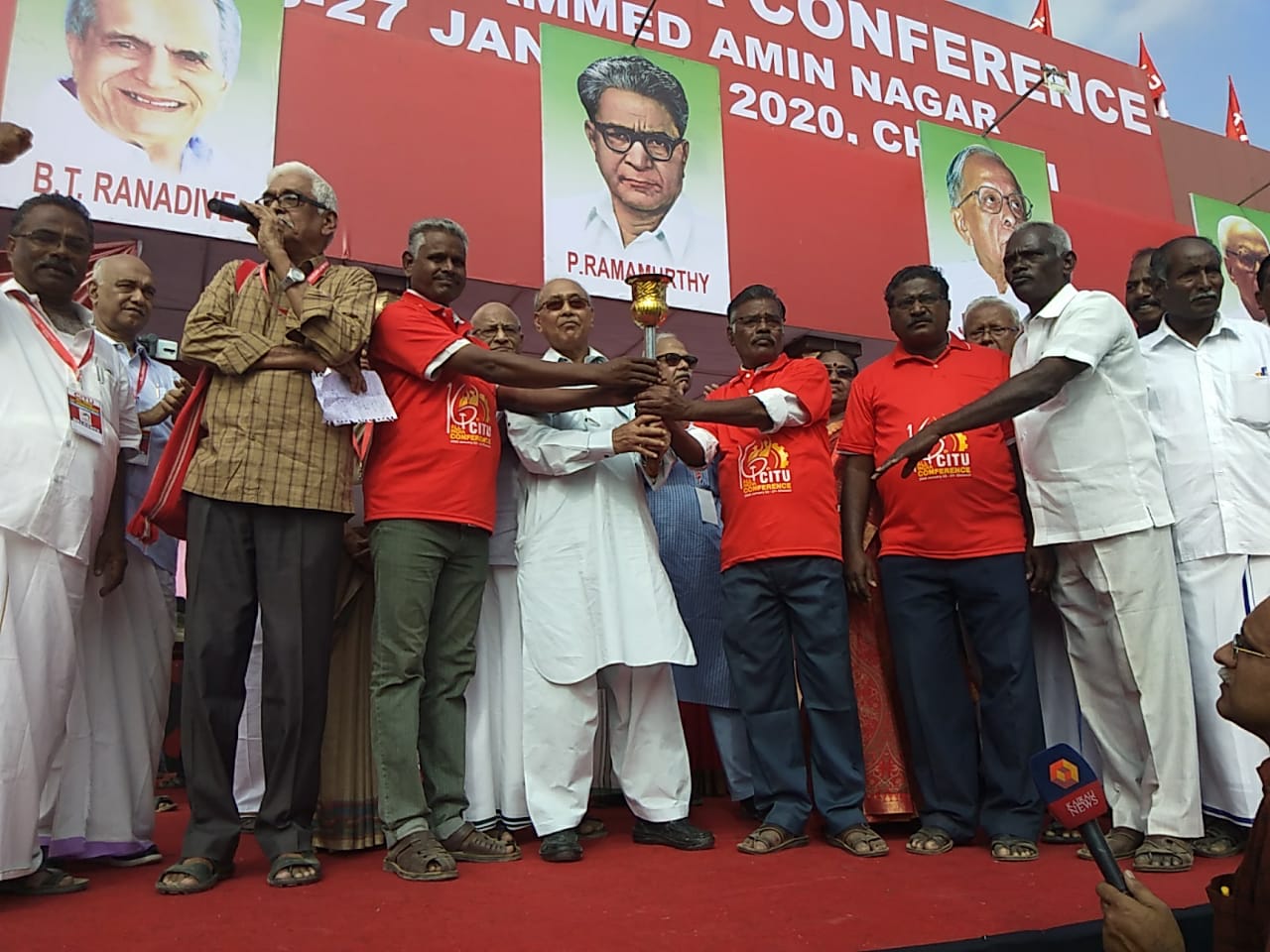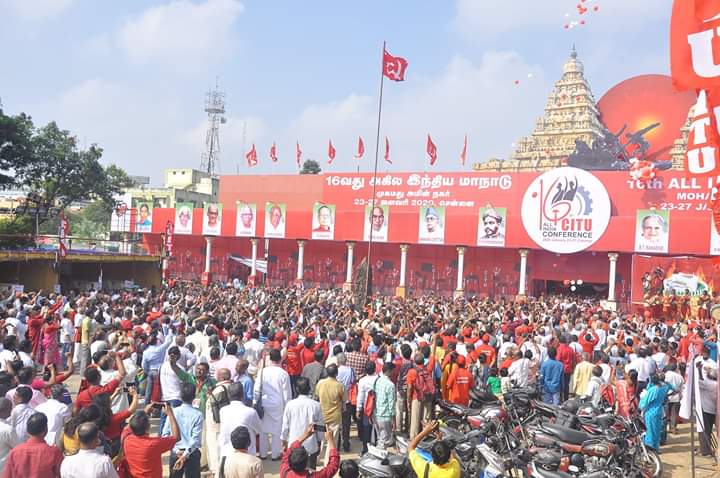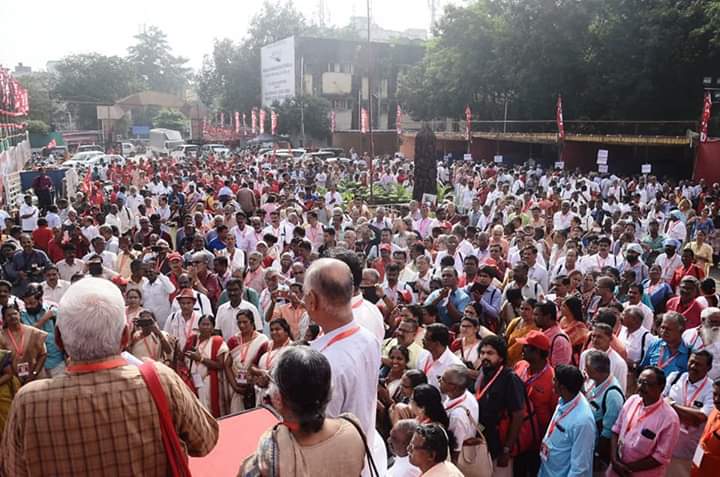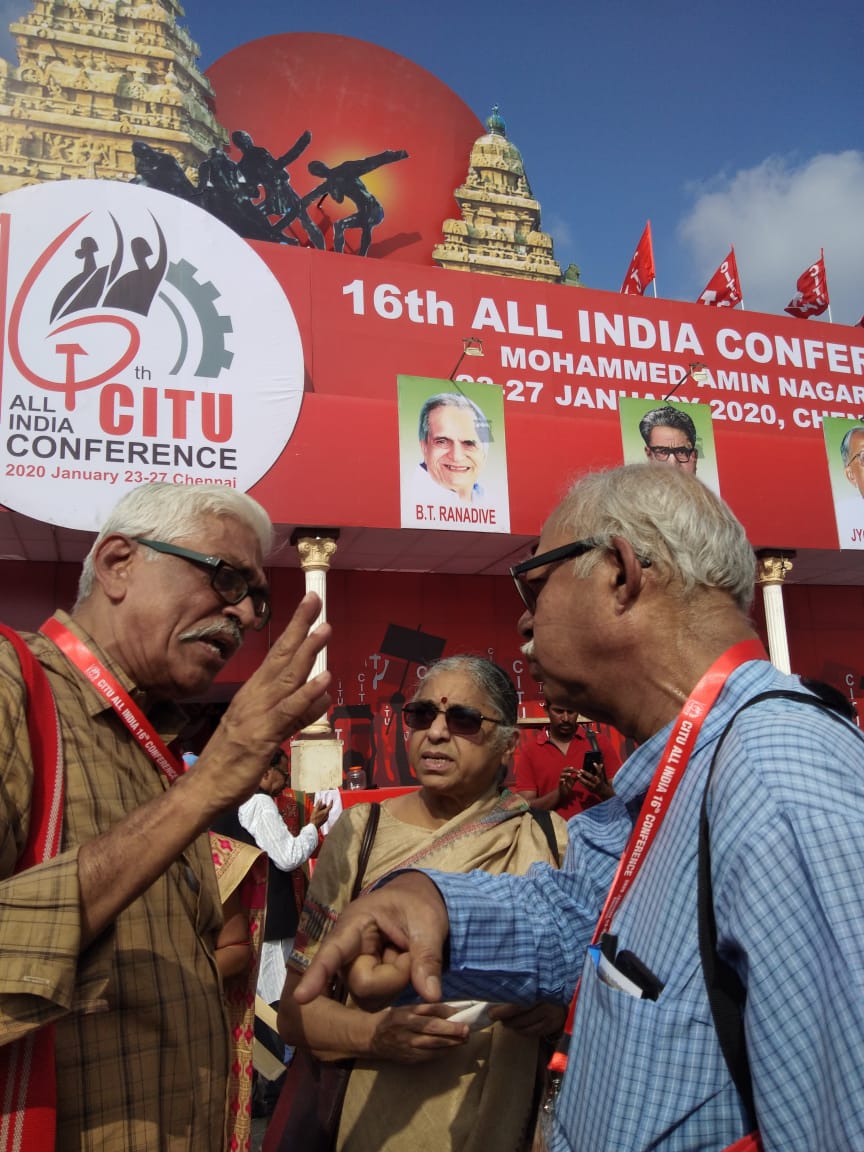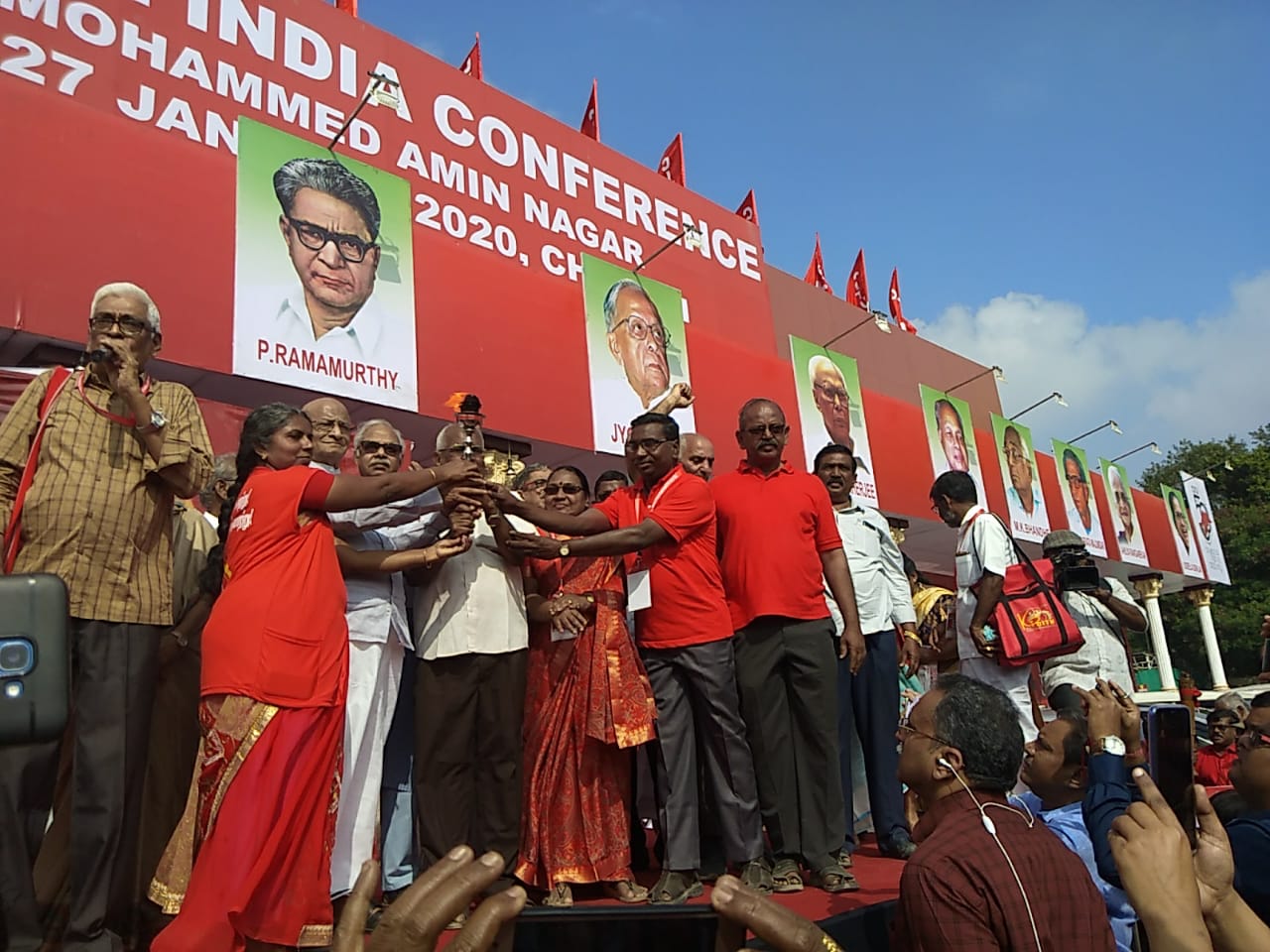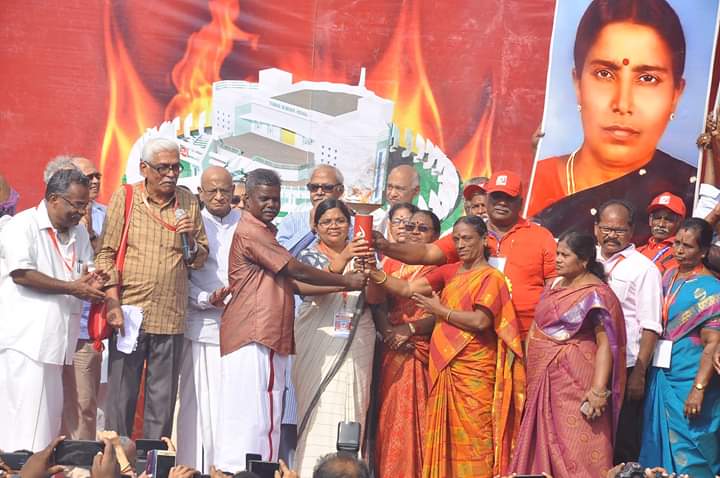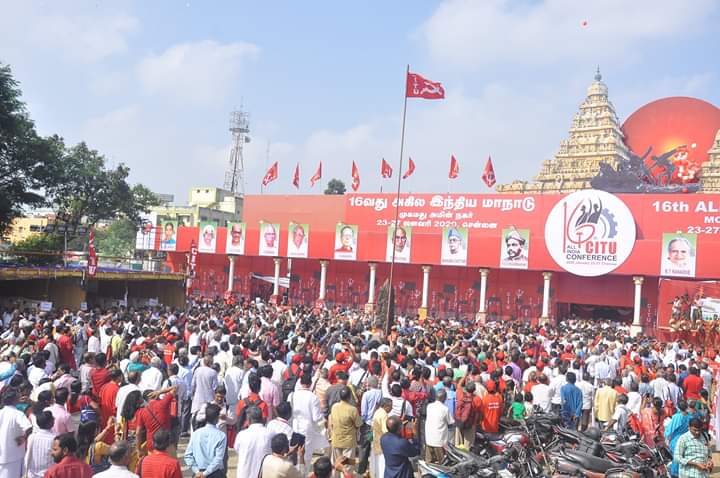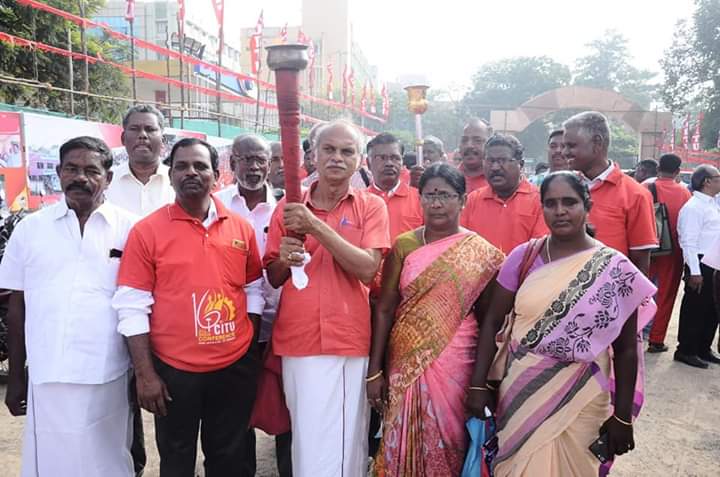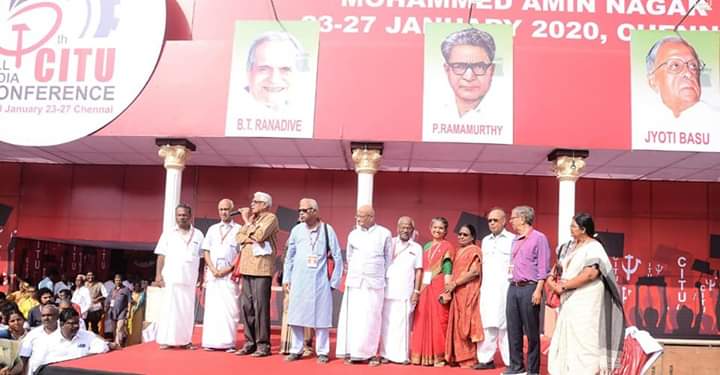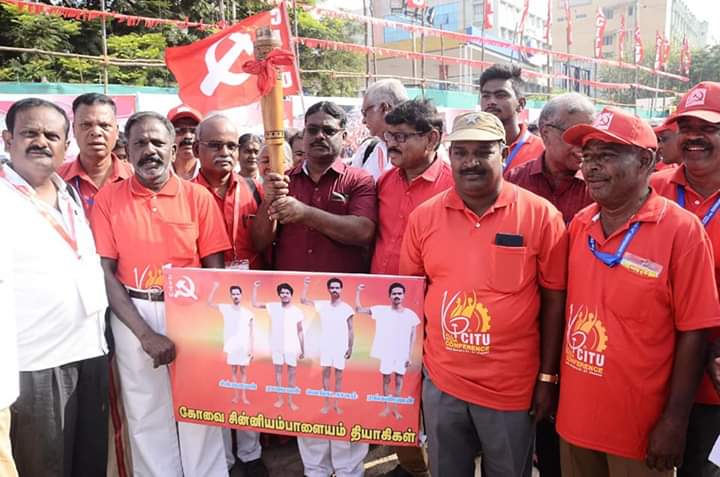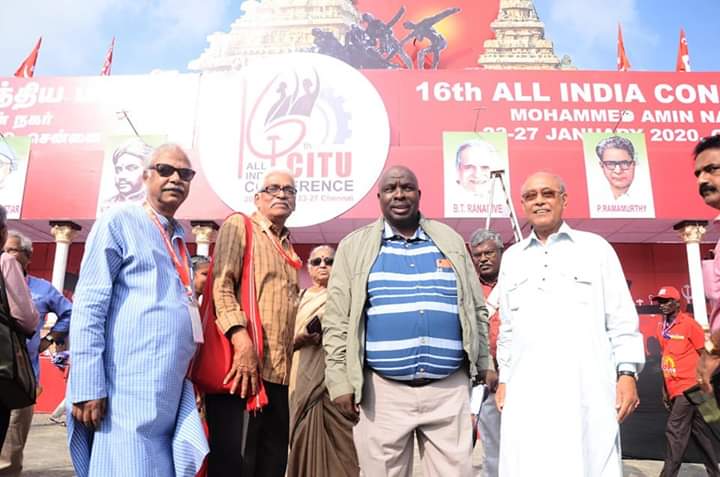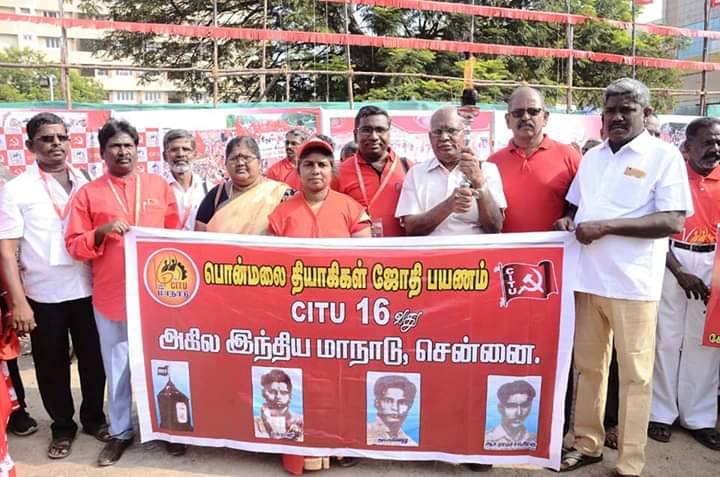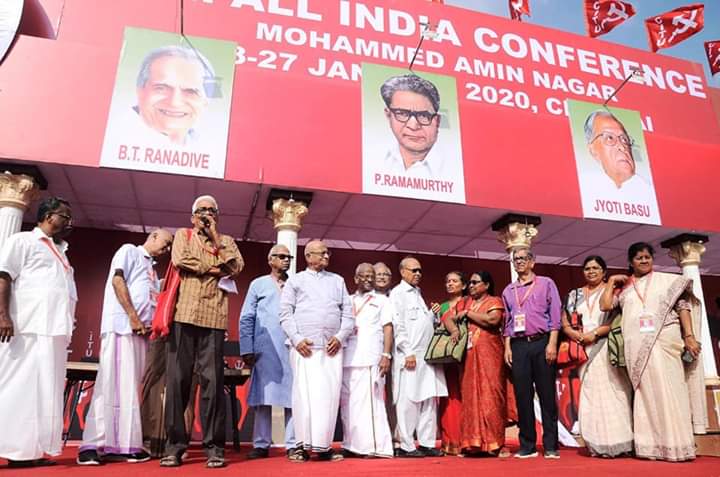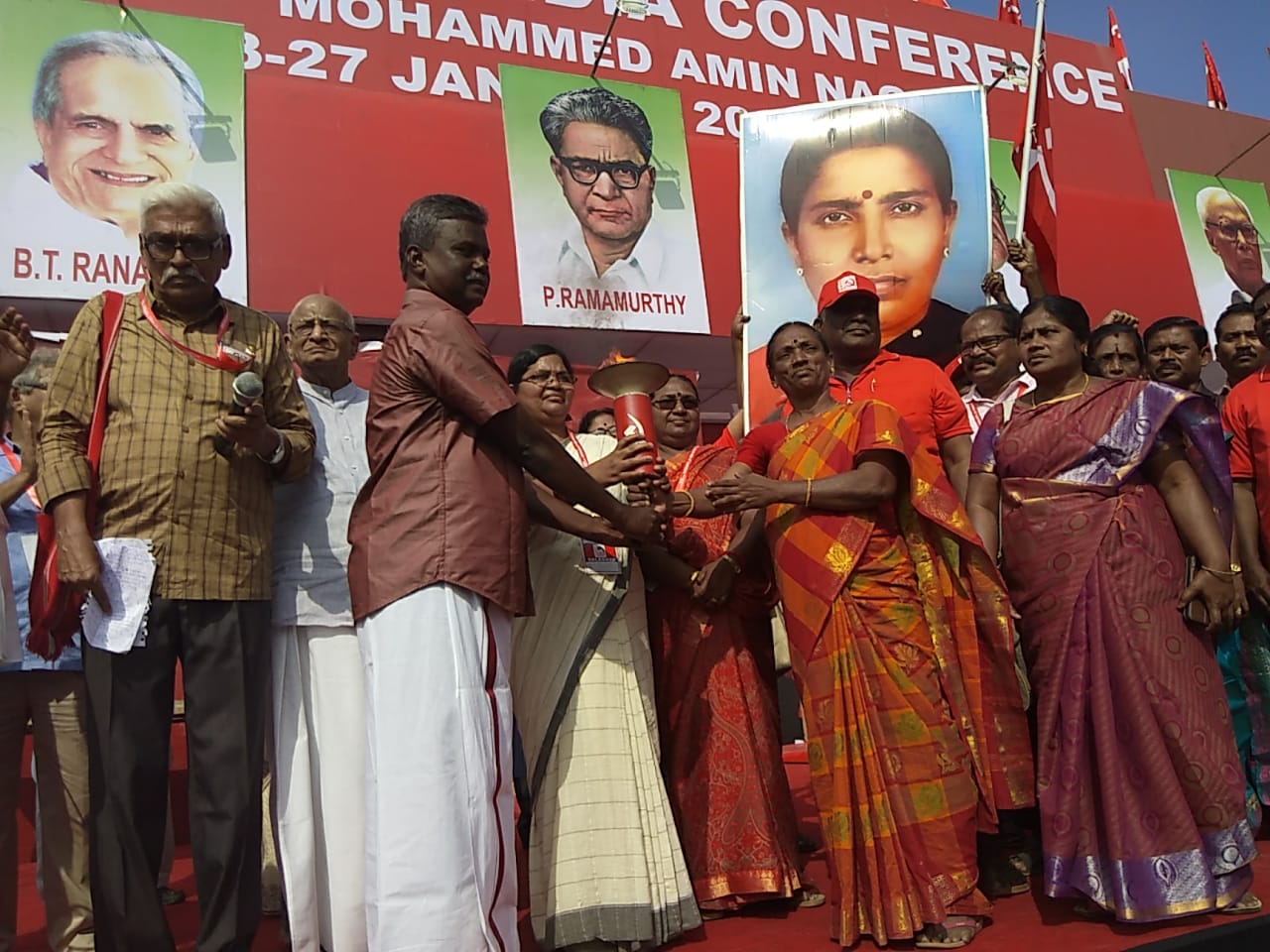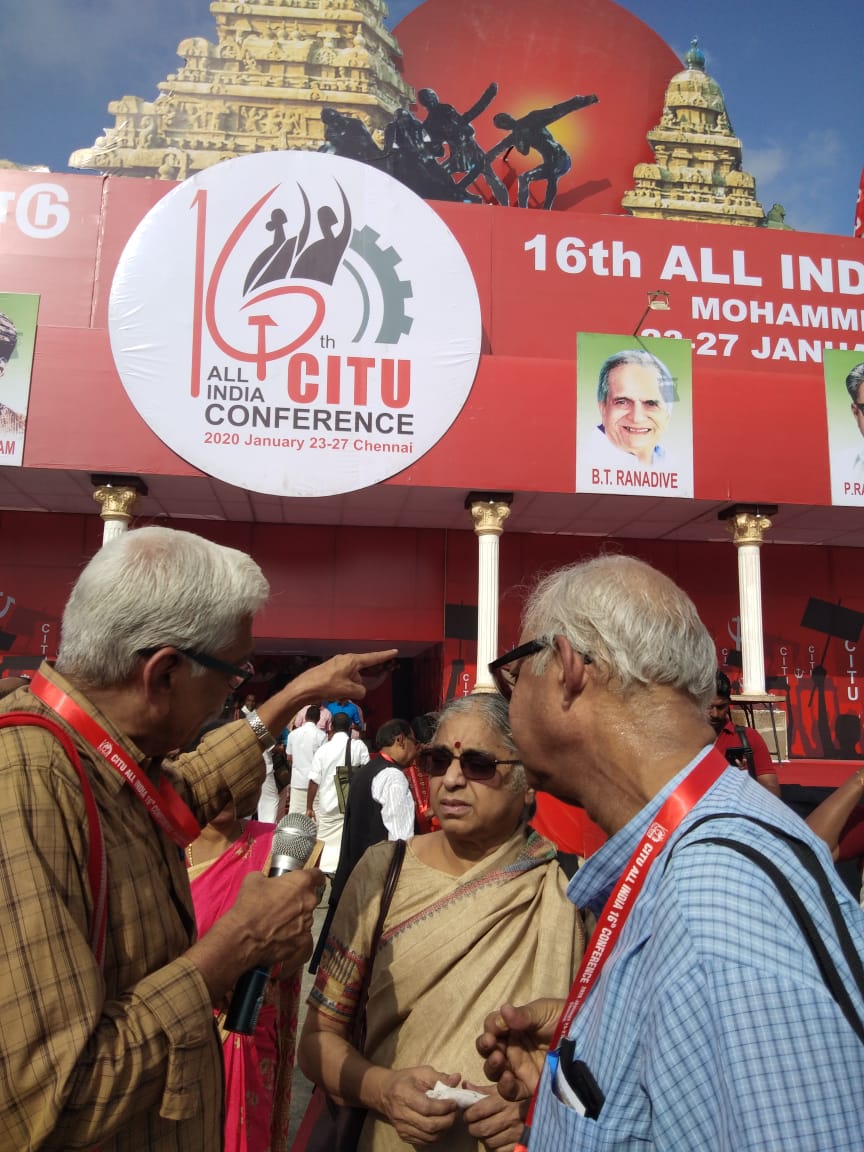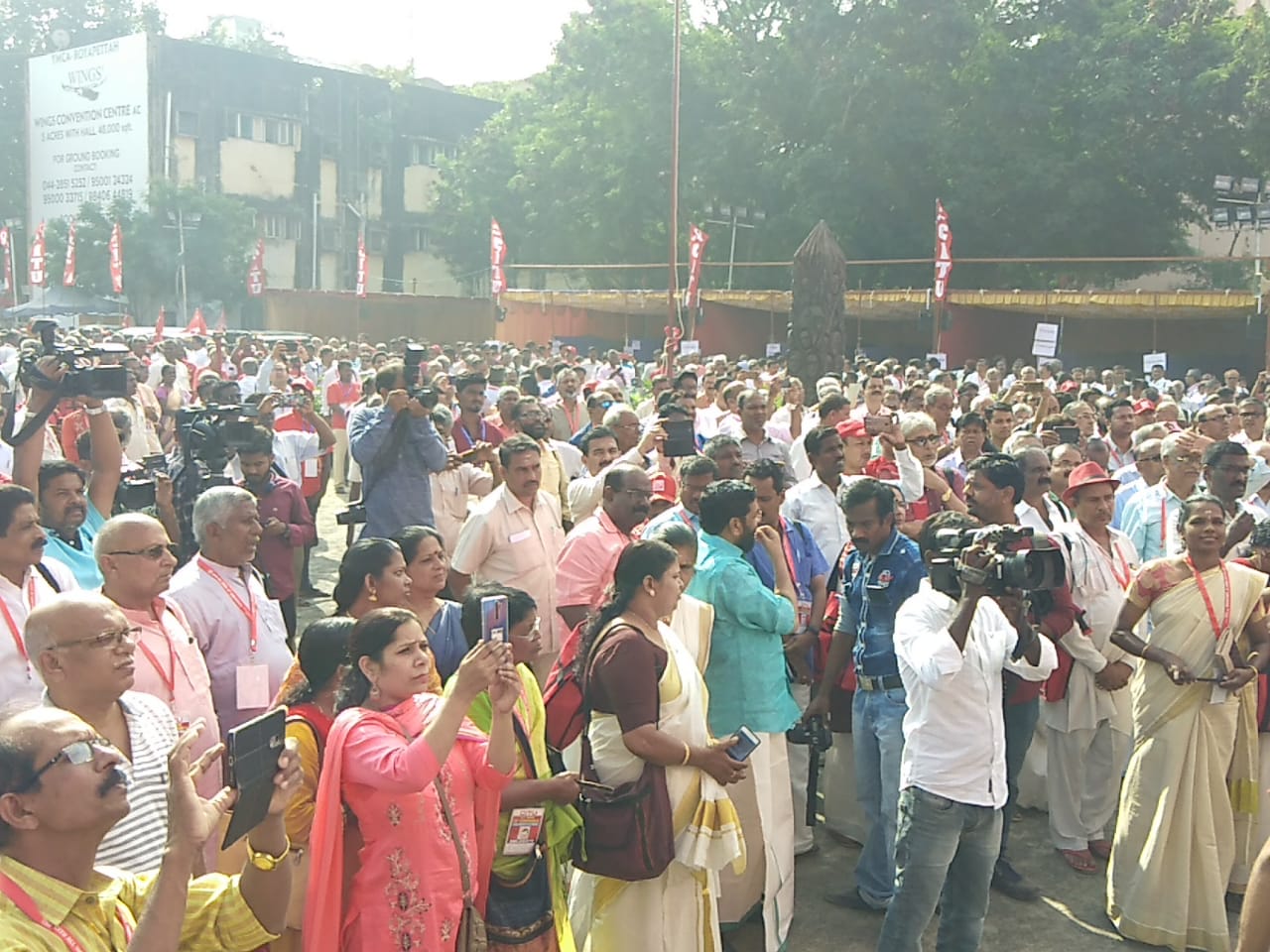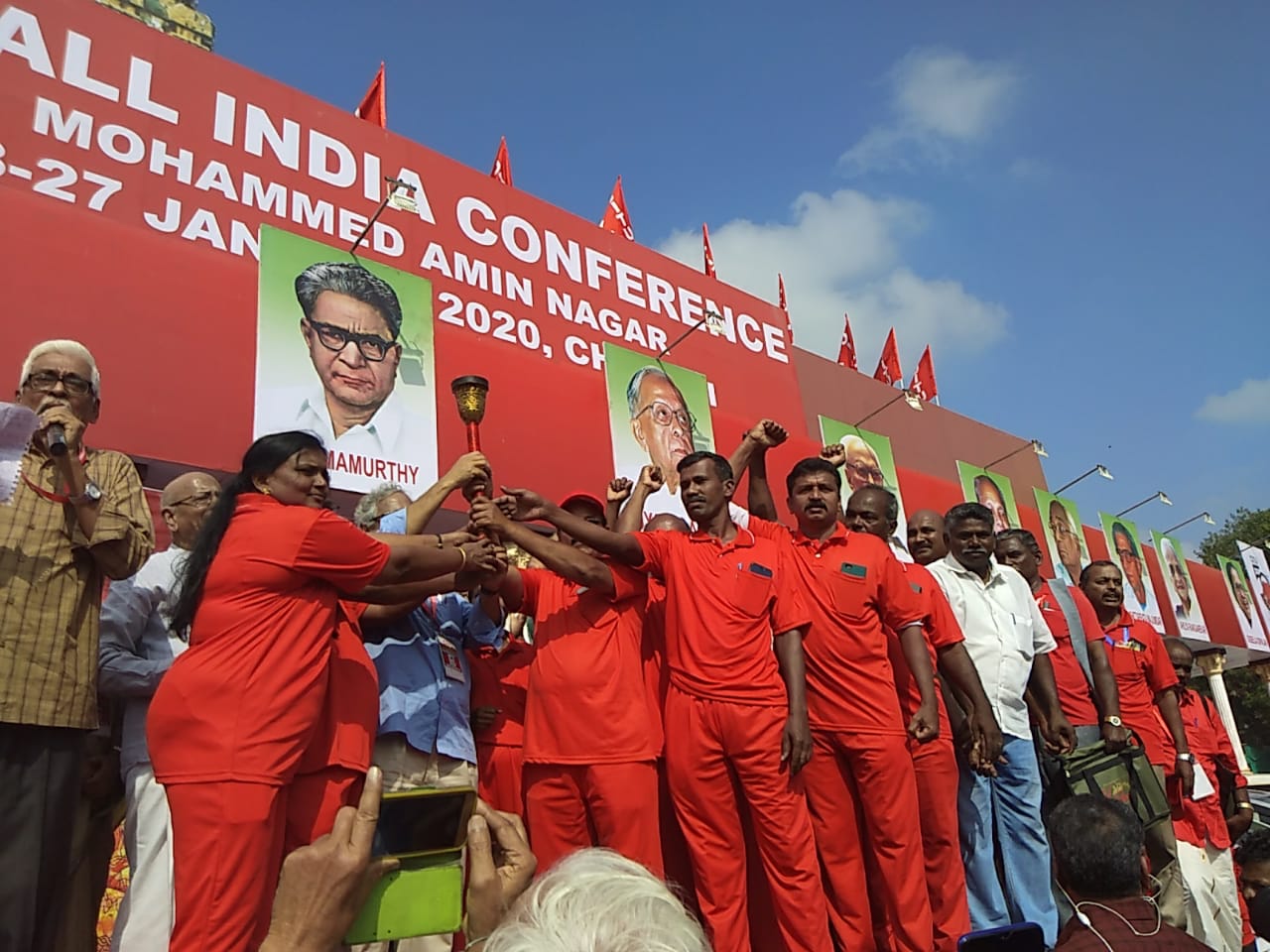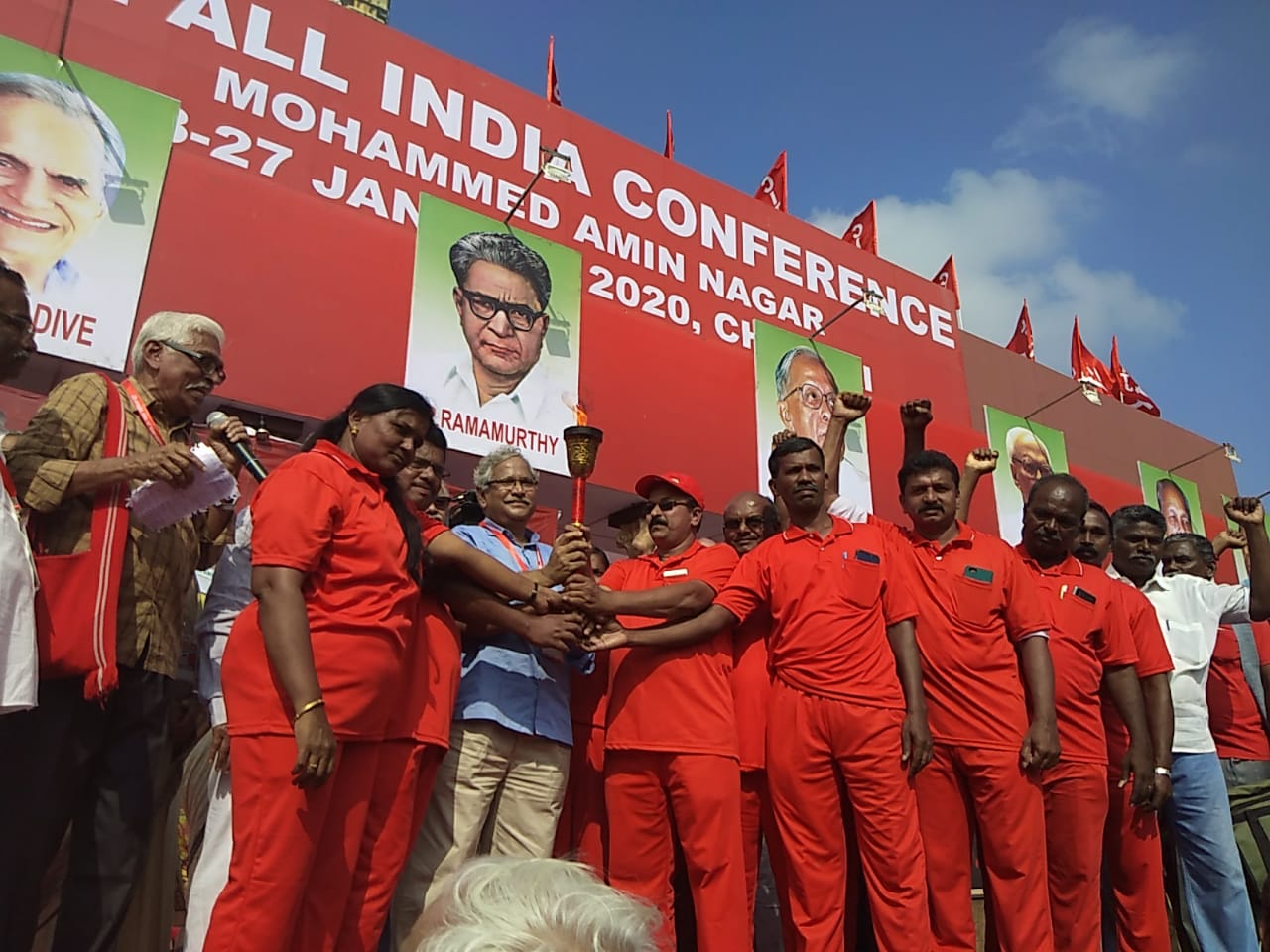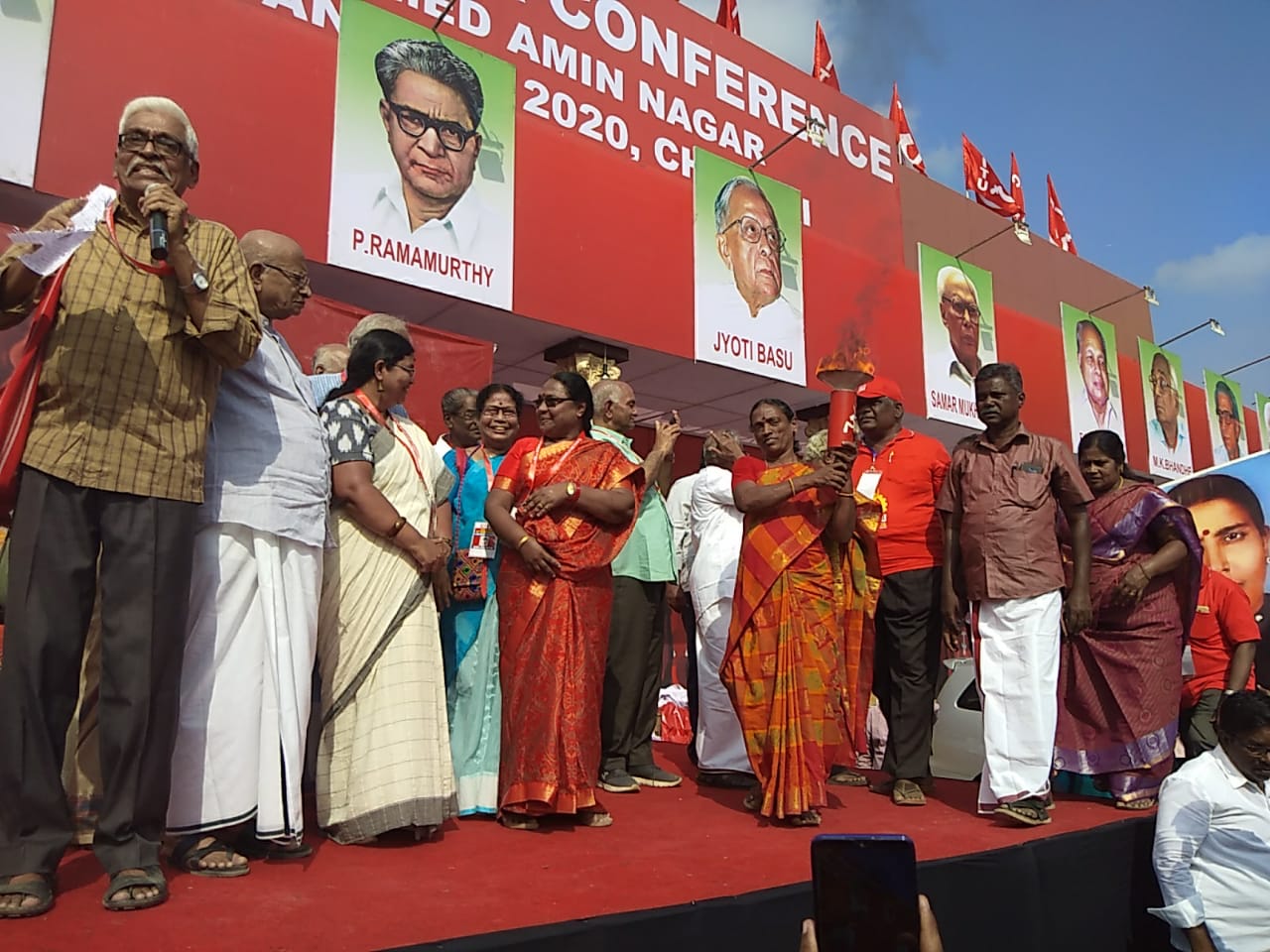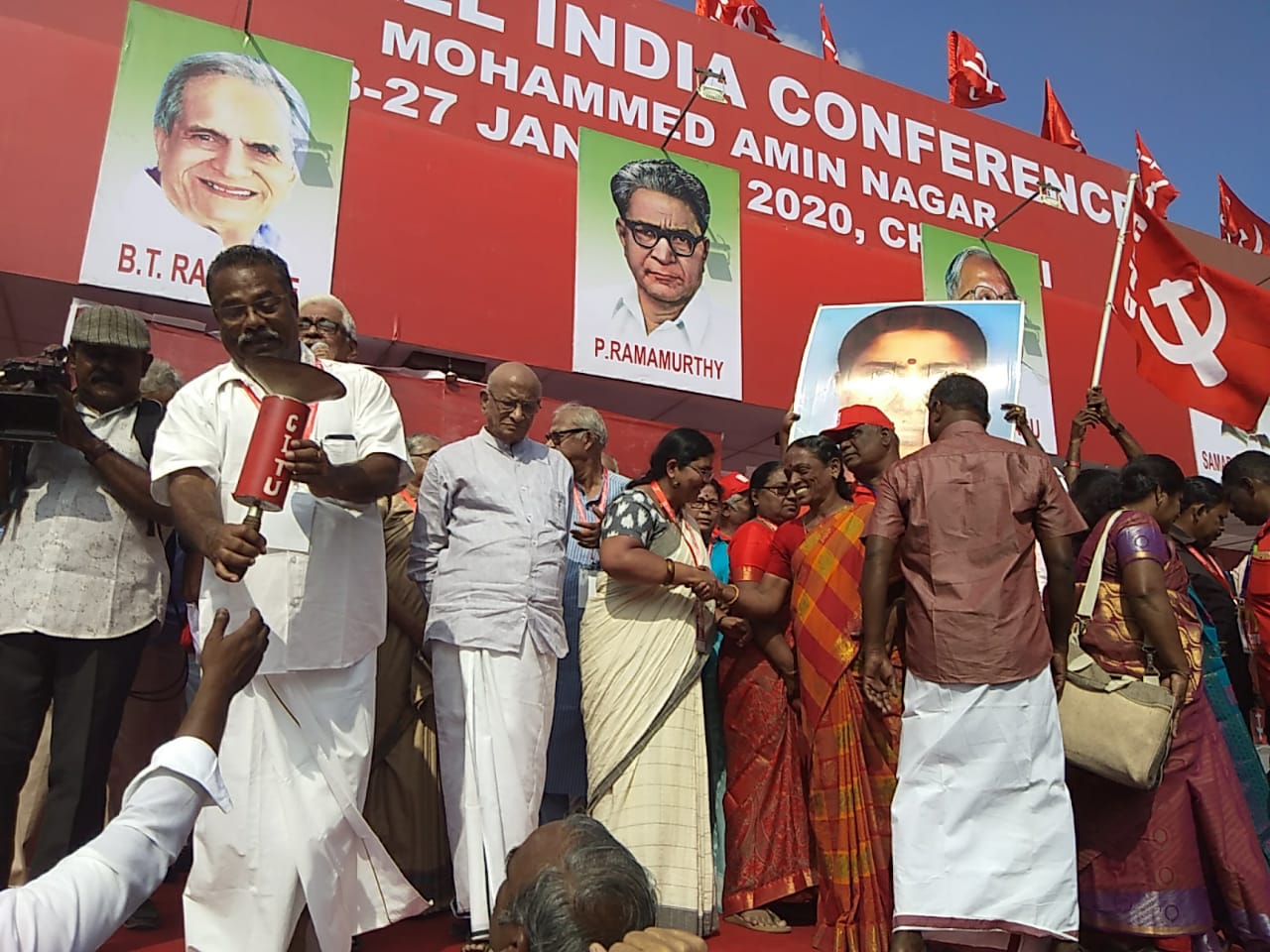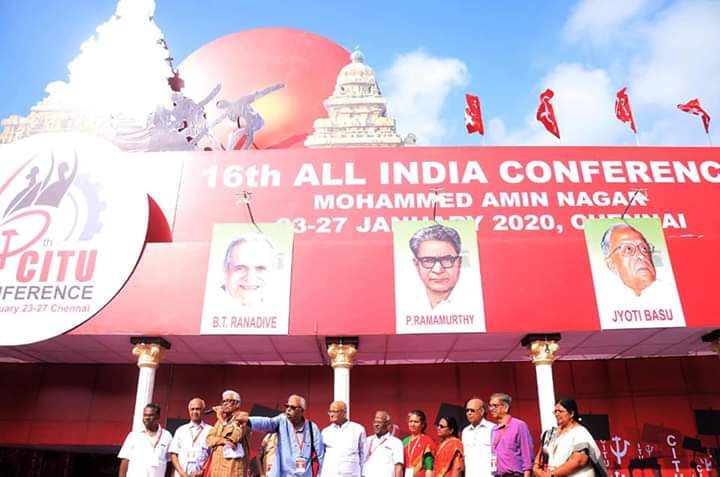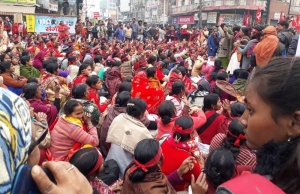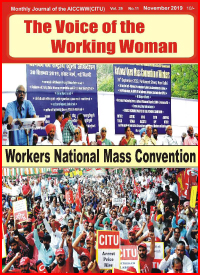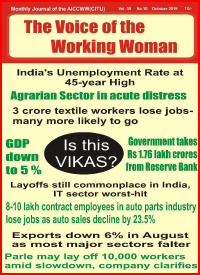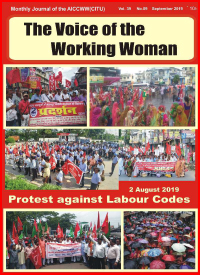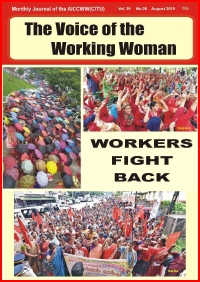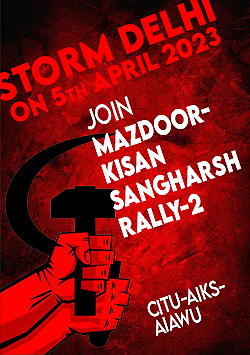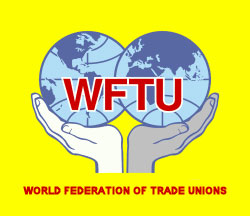Super User
Human Chain against CAA/NRC/NPR
16 conference of CITU successfully concluded with massive public meeting
Strengthen the Workers Peasant Alliance
Strengthen Worker peasant alliance build wide unity of the people to fight the neoliberal policies and attack on the constitution of India
Hannan Mollah, General Secretary of All India Kisan Sabha while greeting the 16th Conference of CITU called upon to strengthen Worker peasant alliance build wide unity of the people to fight the neoliberal policies and attack on the constitution of India. He was greeted with slogans of ‘mazdoor kisan ekta zidabad ‘ (Long live worker peasant unity) by the delegates.
On the third day of the 16th National Conference of CITU, delegates discussed on the Part two of the General Secretary’s Report which dealt with organiaation and future steps to overcome present impediments.
Delegates made self assessment and suggested about the future programme they would take for building up state and district orgniasations to make it compatible to the present challenges. Very revealing experiences emerged out of the performances in last 8th January,2020. Delegates proposed steps they would take to mobilise vast and increasing number of unorganized section of workers. They are determined to increase members of CITU to one crore by this year.
Delegates also emphasised need of educating cadres on the political philosophy of the working class. They also narrated experiences how unorganized sections of workers, particularly, in the IT sector are approaching CITU to mobilize them and pursue their demands. Some advancement in various sectors was also reported.
Speakers from national federation like BSNL informed how the central Govt. has methodically dismantling BSNL for handing over communication sector to Ambani. Banking sector leader stated how for the benefit of corporate the government is merging several banks bringing it to only 12 from 27 thereby washing away scope to provide loan to small lectors and peasants. Bank employees are preparing for strike for indefinite period. Central Govt. employees federation said how the Govt. had prevented implementation of recommendations of 7th Pay Commission. Workers of this sector are also preparing for struggle action. The conference adopted a resolution in support of the banking sector strike.
Discussion in this chapter is expected to continue late night.
The conference also passed resolutions condemning the presence of notorious racist Bolzanaro, the Brazilian President as the Chief Guest of Republic Day of India this year.
Issued By
Amitava Guha
CITU Conference begins with Clarion call for Unity of the Working People
Against the anti people policies of Modi Government and Defend the constitution of India
Demands repeal of CAA-
Solidarity with Fighting workers of France
Solidarity with people of Jammu and Kashmir
CITU DENOUNCES GOVT MOVE TO END THE PROVISIONS OF CAPTIVE MINING OF COAL THROUGH ORDINANCE
Centre of Indian Trade Unions condemns the retrograde decision of the Govt at the centre to promulgate Ordinance to amend further the Mines & Mineral Development (Development & Regulation) Act and Coal Mines (Special Provisions ) Act (MMDR Act and CMSP Act) with the purpose of ending the very concept of captive mining of coal to meet the raw materials need of certain crucial industries like steel, power, aluminum, fertilizers etc for which coal is an essential raw material, as reported by media.
Such a decision will be disastrous for the concerned industries which are the backbone of the national economy. Enactment of both the Acts in the first tenure of the Narendra Modi Govt, facilitating aggressive privatization of the entire mining sector and allowing commercial mining of coals even by captive mines were by themselves a retrograde decision damaging the basic interests of the national economy.
Amending both the Acts further removing totally the restriction of end use relating to raw material requirements of vital industries, of these precious natural resources like coal, iron-ore etc for private players, both foreign and domestic bidding for the allocations of mine-blocks will convert these natural resources virtually and wholly into the items for trade and commerce including exports, ignoring their essential necessity as raw material for the core and strategic sector industries like power, steel, aluminum, fertilizers etc. Such a decision is also going to hit the economic viability of the public sector Coal India Ltd in the background of free entry of 100 per cent FDI in commercial mining of coal. The new coal bearing areas identified through research and exploration process by CMPDIL and Geological Survey will flow more to the private sector players depriving the Coal India Ltd from continuing replenishment of its exhausted mines.
CITU denounces such destructive decision of the Govt which is going to cast fatal impact for the industries wholly depending on coal as raw material. This decision, given the trend and destructive mindset of the Govt, is going to be replicated for iron-ore mines also. Excuses being made by the Govt that this decision will reduce coal import is totally untenable and illusory. Rather this is going to expand the grip and control of foreign players with Indian private contractors as their junior partners, on the country’s vital mineral resources, much to the detriment of our national interests.
CITU calls upon the working class and democratic people to oppose and resist such destructive move of the Govt through Ordinance route. United struggle to combat this disastrous move both at industry and national level is the way before us.
Issued by
(Tapan Sen)
General Secretary
Workers Strike Against Modi Government
Centre of Indian Trade Unions (CITU) salutes the working people of India who have risen as one to challenge the Modi government’s anti worker, anti people and anti national policies through the unprecedented general strike and rural bandh on 8th January 2020.
While the industrial workers across sectors all over the country went on strike, the peasants and agricultural workers massively responded to the call of ‘rural bandh’ and organised road and rail blockades.
There was total bandh in Kerala, Tripura, Assam, Bihar, Punjab, Odisha, Tamil Nadu, Telangana, Goa, and several other states. Shops and road transport were closed totally in Tripura defying the warning by BJP goons not to do so. In West Bengal, and in many districts of Jharkhand, Karnataka etc there was bandh like situation.
Workers in private organised sector including the MNCs responded magnificently to the strike call. The strike was total in big industries in Karnataka including Toyota, Volvo buses and Volvo trucks, Bosch, ITC, Vikrant Tyres etc. Most of the industrial clusters in Karnataka, Tamil Nadu, Telangana, Maharashtra, Delhi NCR, Jharkhand, etc were closed due to the strike. The strike in Jute and Plantation was massive. The strike was total in many industrial clusters across the country, particularly in Telangana, Tamil Nadu, Karnataka, Maharashtra, Madhya Pradesh, Punjab, NCR Delhi, Jharkhand etc.
Strike was total in BHEL plants in Trichy, Ranipet and Jhansi, around 70% in BHEL, Haridwar and 50% in Vizag. Strike was total in Salem Steel and Vizag Steel. Strike was also almost total in petroleum sector installations across the country. Many of the units of Powergrid Corporation also reported massive strike. Ports at Kakinada, Tuticorin, Cochin, Paradip and Mazgaon dock reported almost total strike while in Calcutta port strike was partial.
Electricity distribution and consumption in the country registered a decline due to the participation of the state electricity boards’ employees in a big way in the strike
Road transport in most of the states was off the road with the roads deserted. In West Bengal, most of the buses that ran were empty. 3.5 crore road transport workers participated in the strike all over the country.
Scheme workers across the country, particularly anganwadi employees, midday meal workers and ASHAs participated in the strike en masse. Medical and sales representatives also participated in the strike in total.
Central government and state government employees participated in the strike ignoring the warnings of the governments. Around 13 lakh central government employees in postal, income tax, audit and accounts, etc participated.
Strike in the banking sector was near total while it was total in the insurance sector. Telecom employees also participated in the strike.
In addition, workers in several segments of unorganised sector like construction, brick kiln, village chowkidars, home based workers, domestic workers, autorickshaw drivers etc participated in the strike as also the plantation workers across the country.
Huge demonstrations, rail and road blockades were organised in thousands of places in the country with the participation of hundreds of thousands of people.
The call for ‘rural bandh’ given by the peasants’ and agricultural workers’ organisations was also successful. Across the country peasants participated in the road and rail blockades in huge numbers. Students, youth and women also participated in the demonstrations.
On the whole the strike received massive support of the common people showing the huge anger against the Modi government’s destructive policies. In addition to the 12 points demands the trade unions also opposed the attacks on the democratic rights and the outrageous onslaught basic tenets of the Constitution through CAA, NRC and NPR etc by the Modi government.
CITU extends its heartfelt gratitude to all those who supported the strike and stood in solidarity with the working class and particularly the organisations of farmers, agricultural workers, students , youth and women. It warns the Modi government that it can neglect the huge anger of the people against its policies of selling people’s and nation’s interests to the corporates, domestic and foreign, at its own peril.
The toiling people are rising and they won’t rest till they achieve their demands
Issued by:
Tapan Sen
General Secretary
